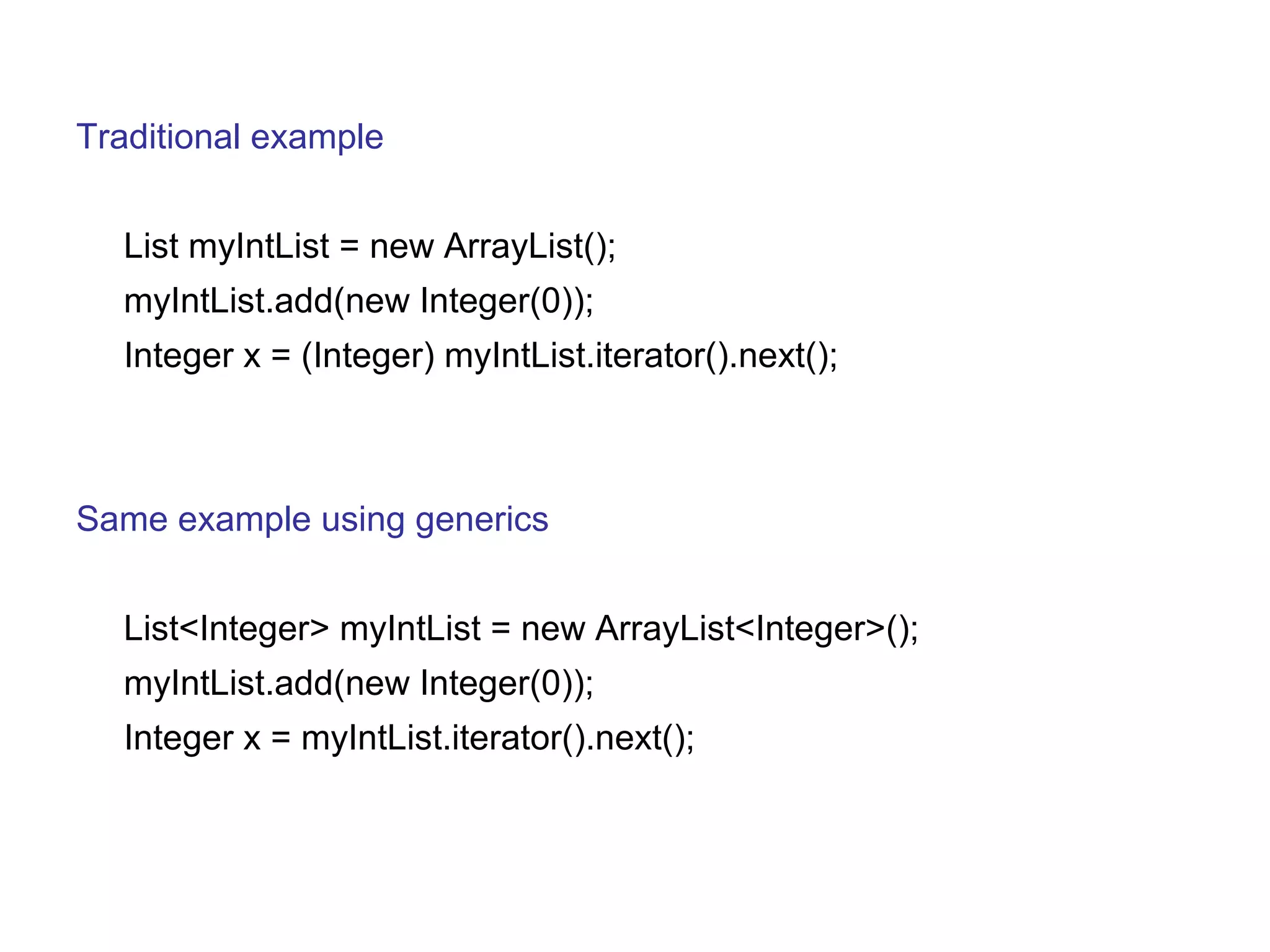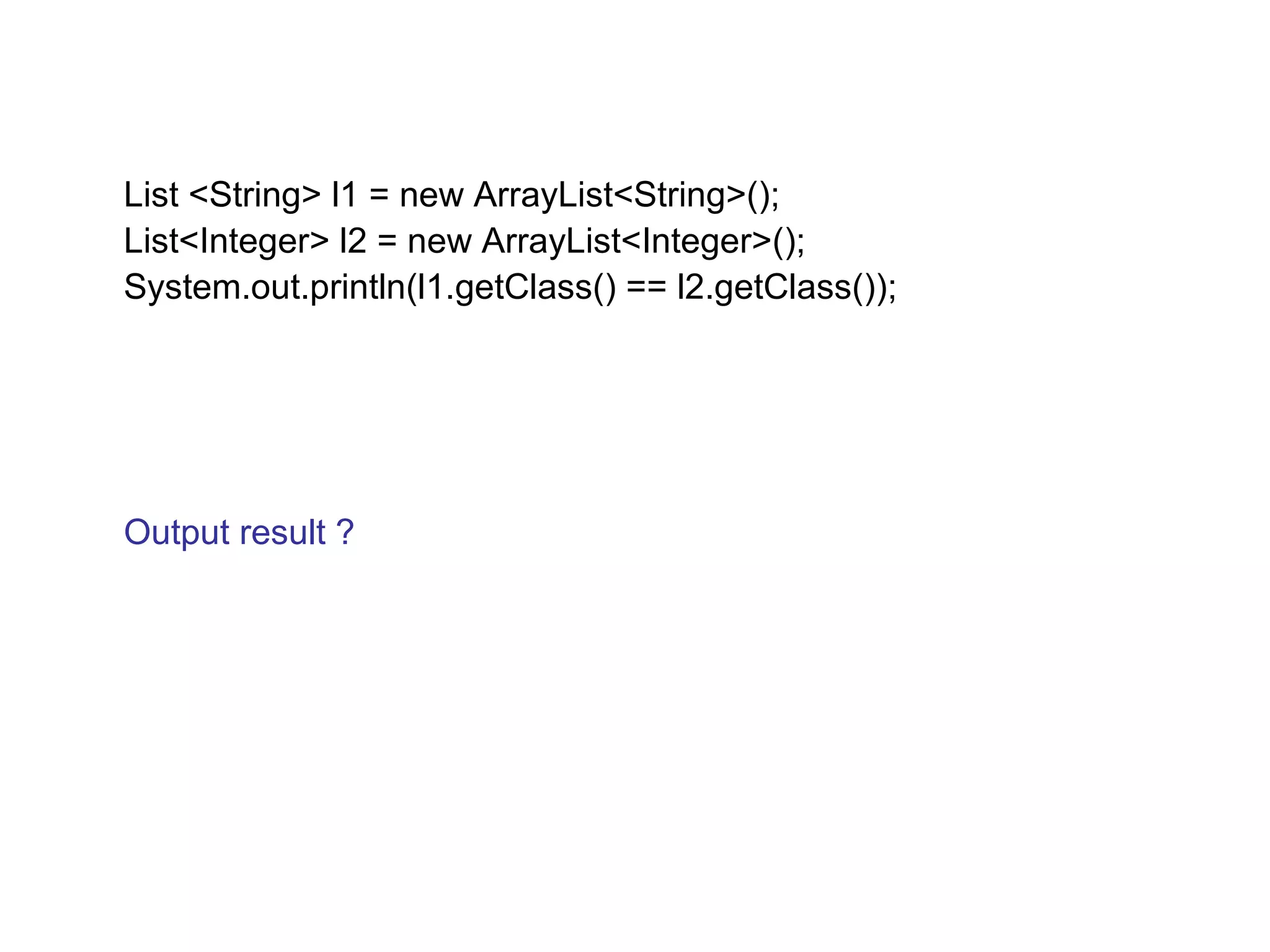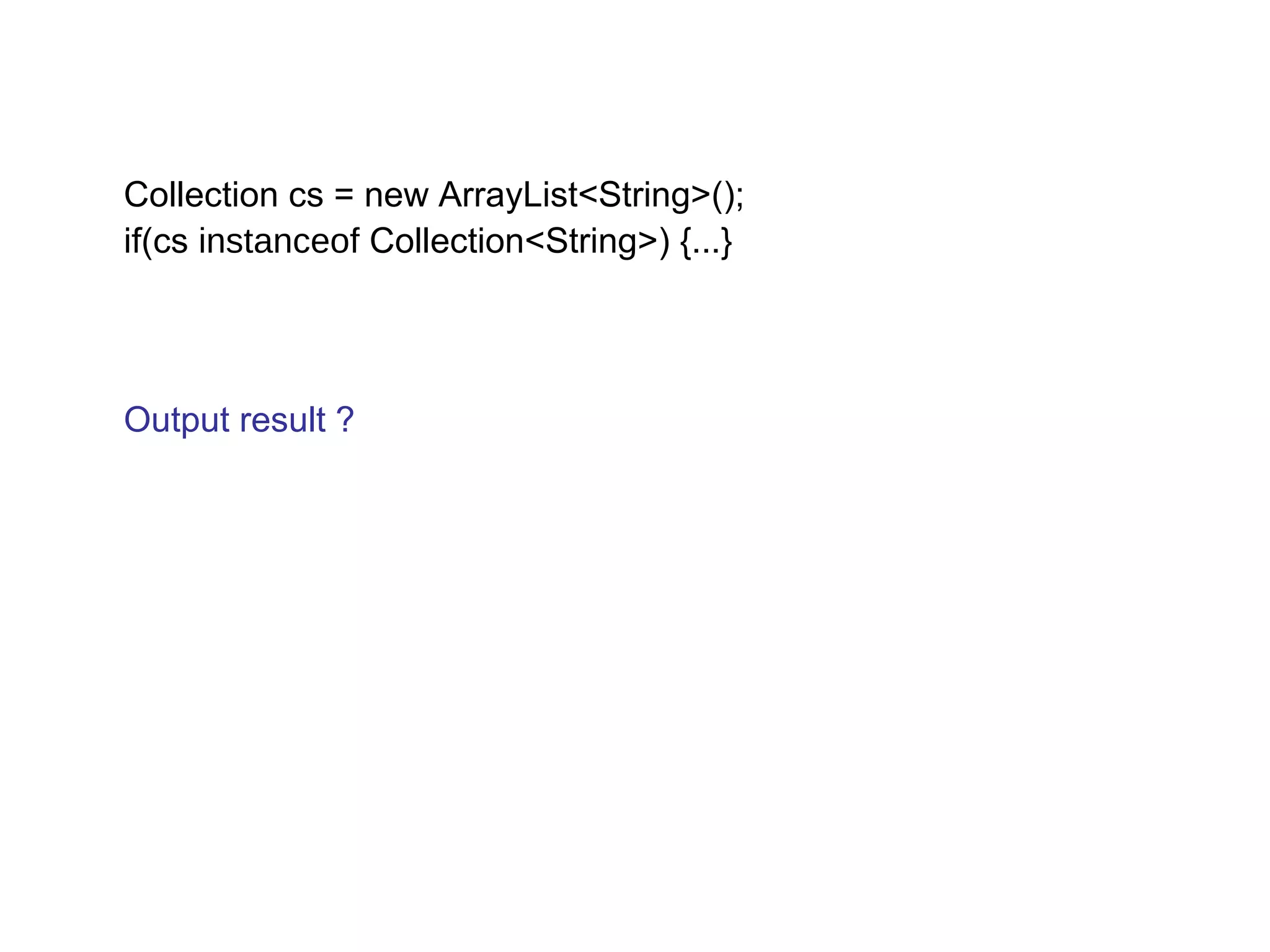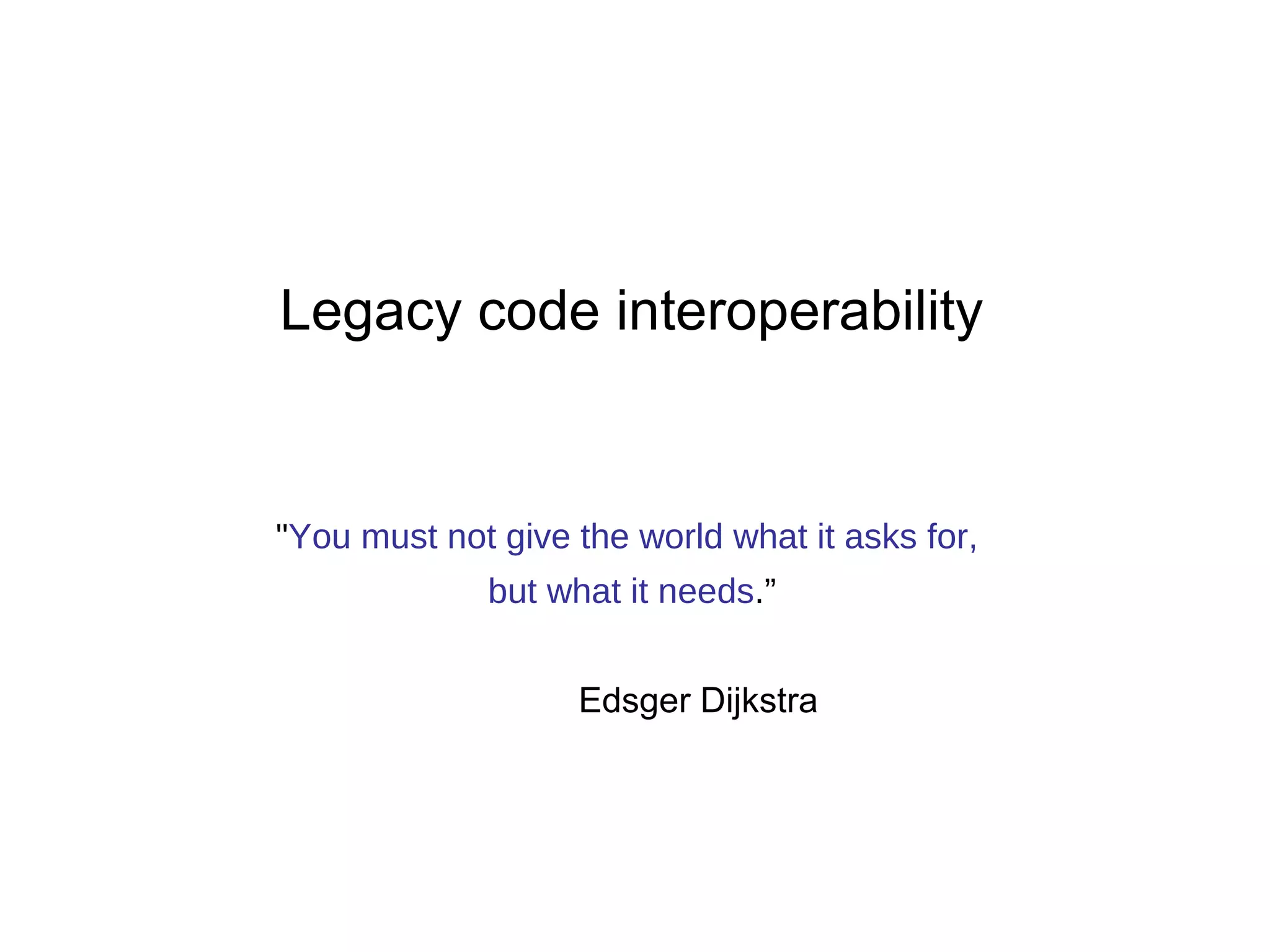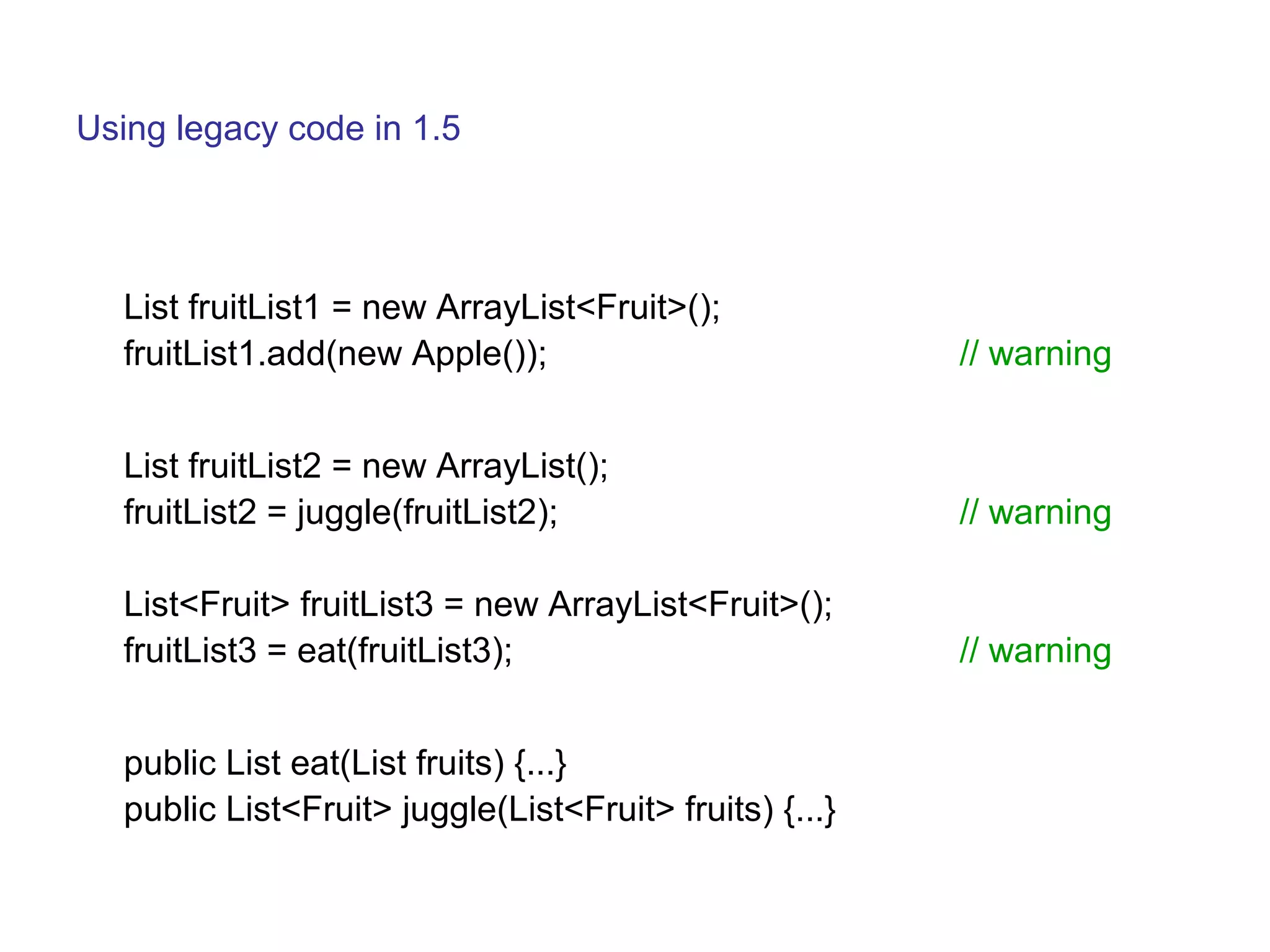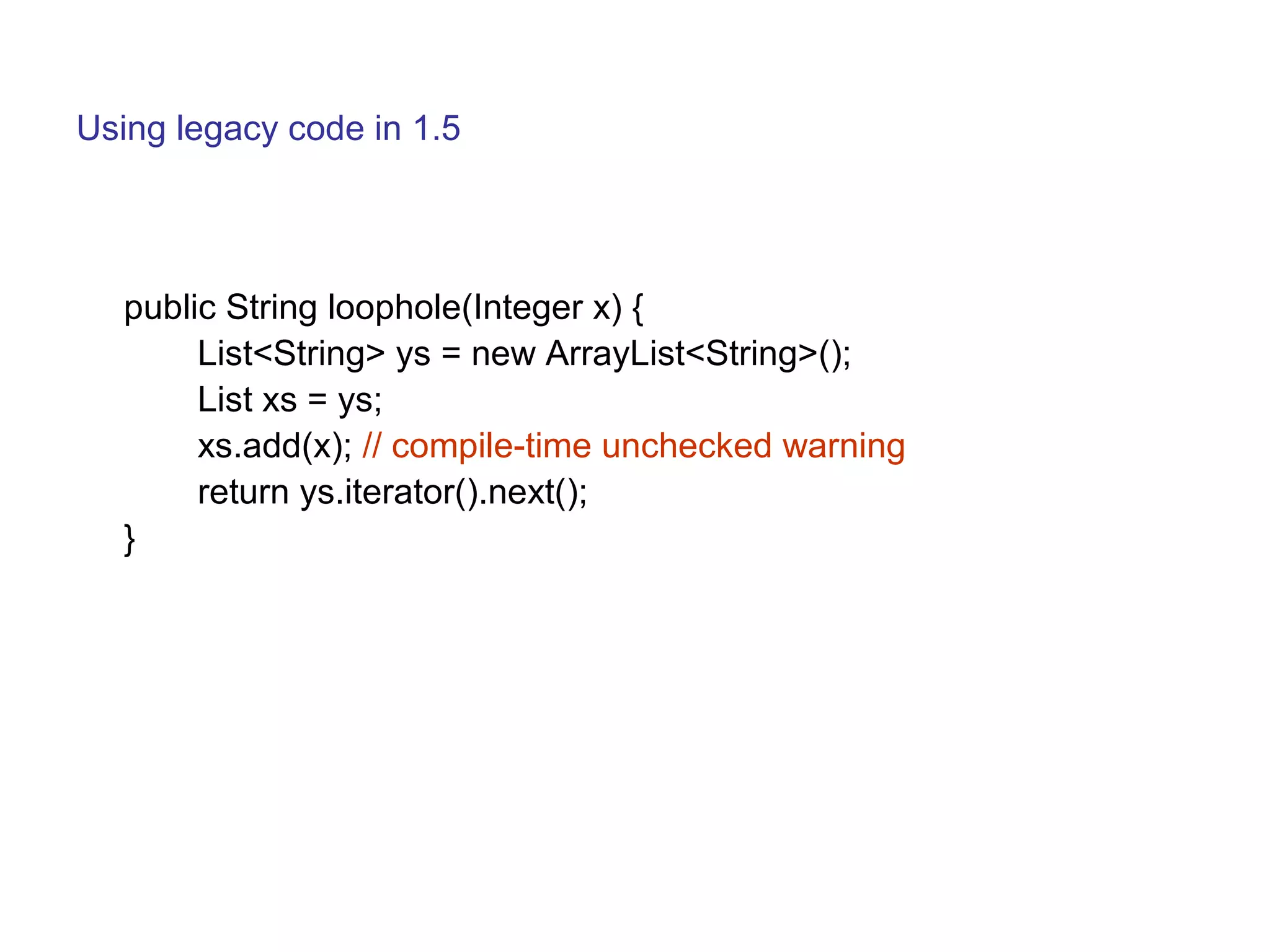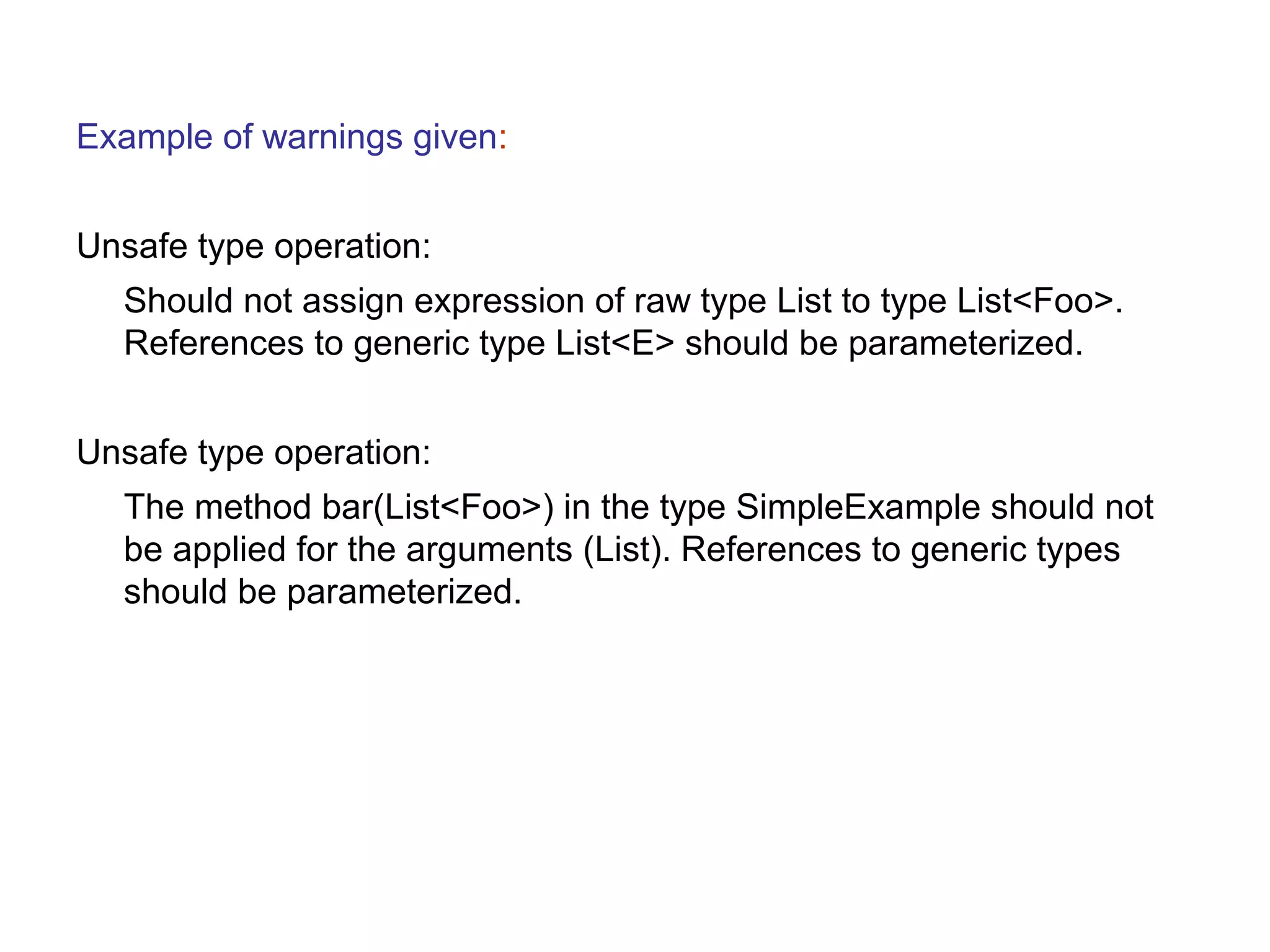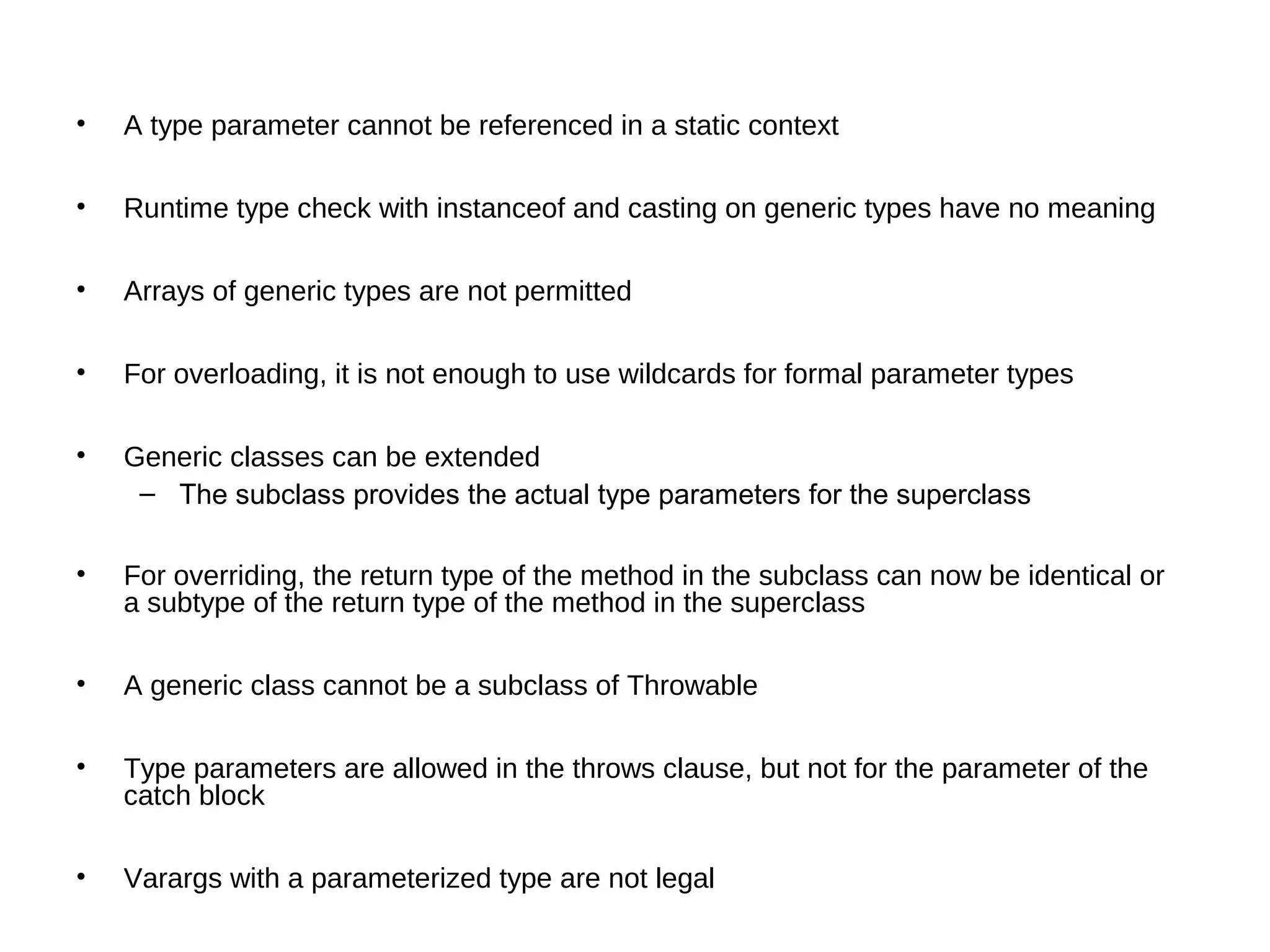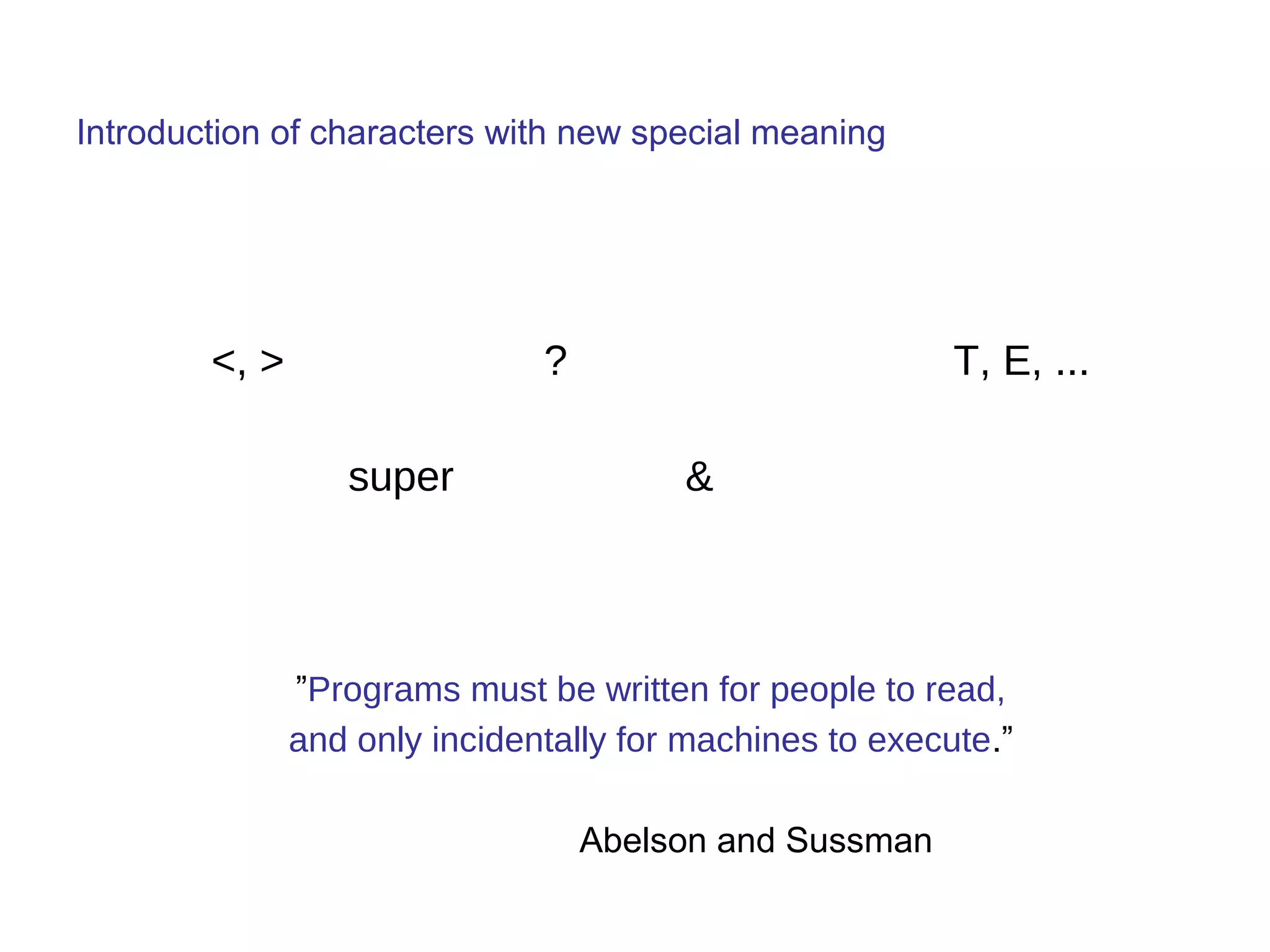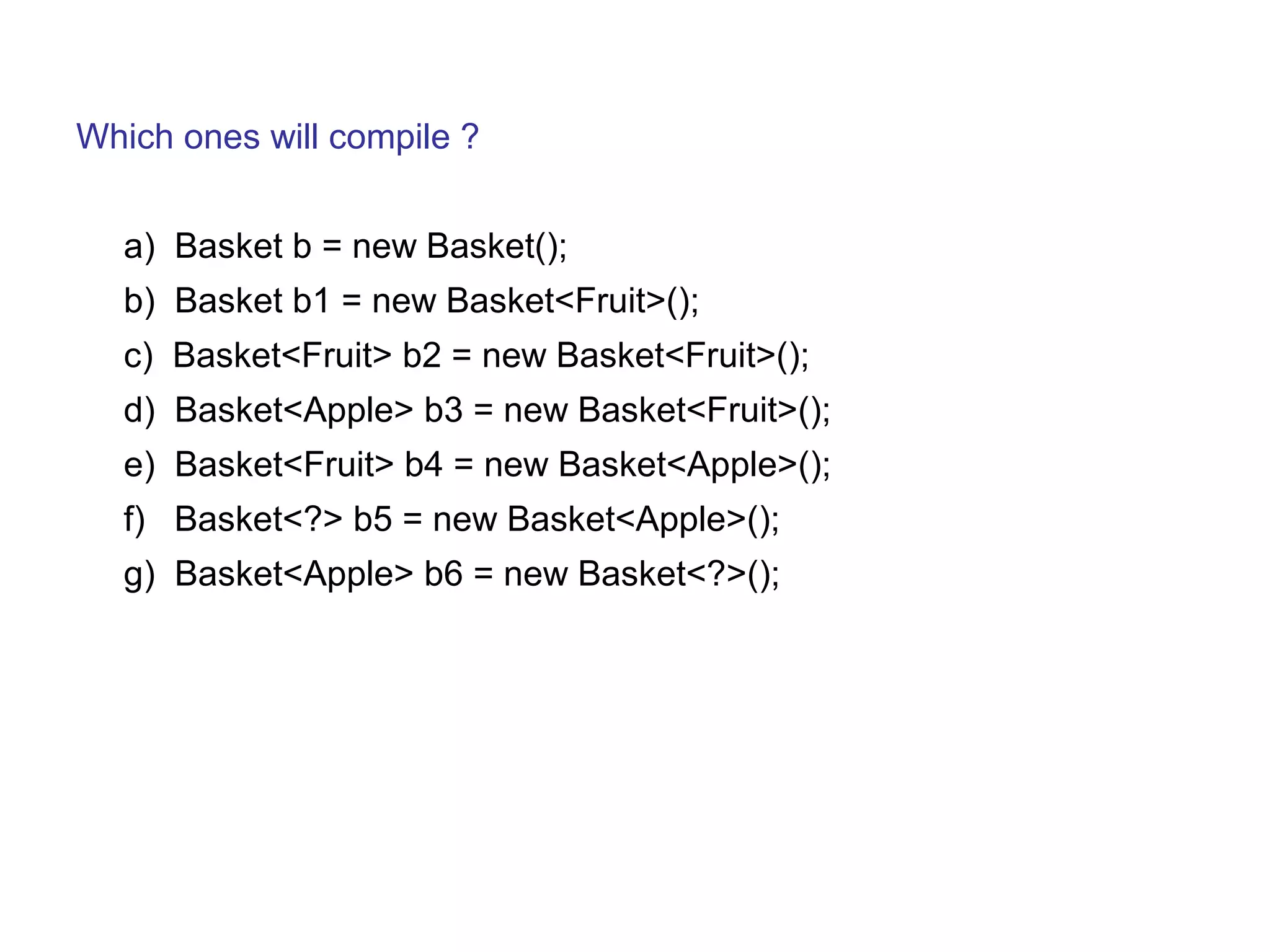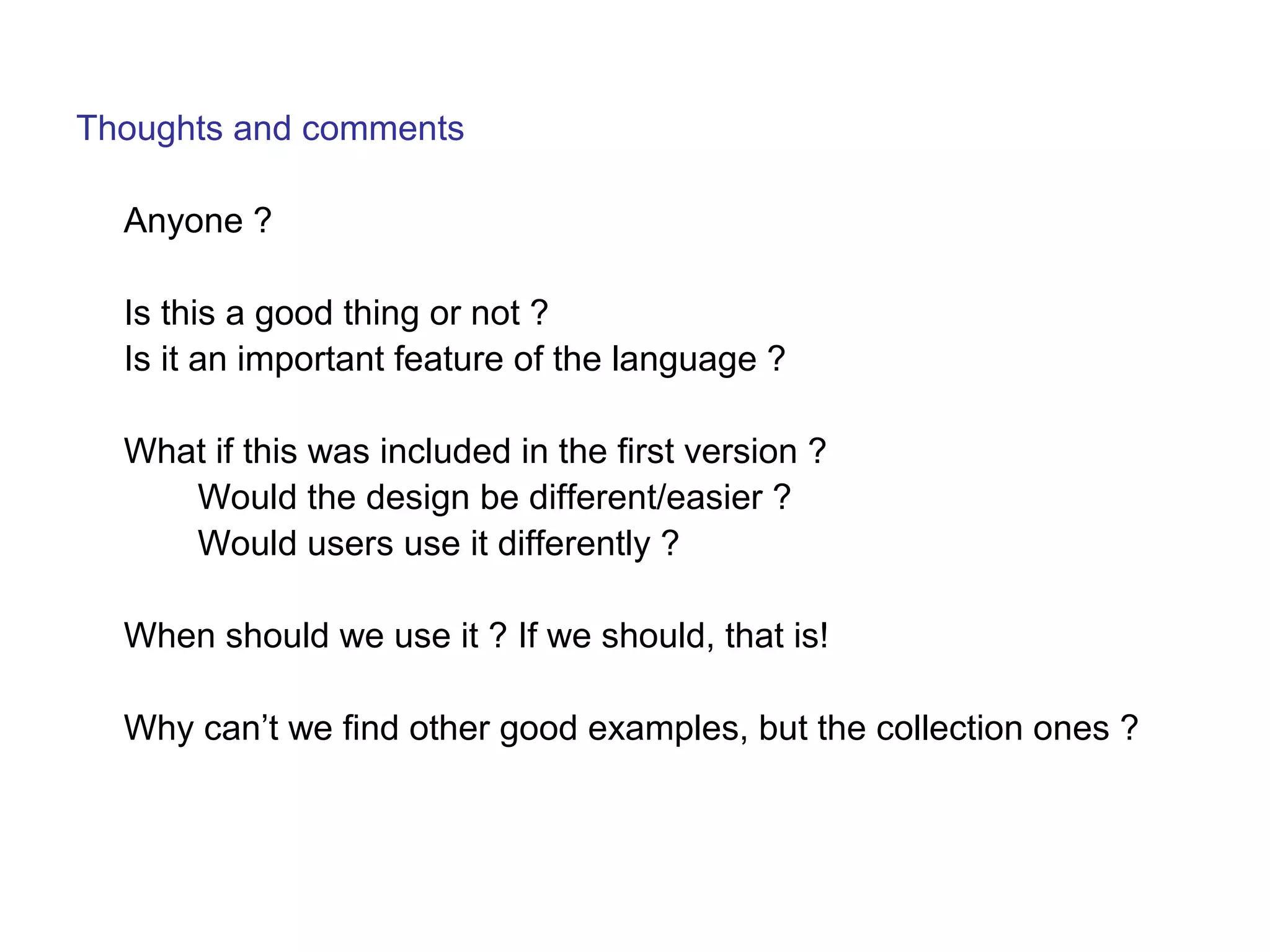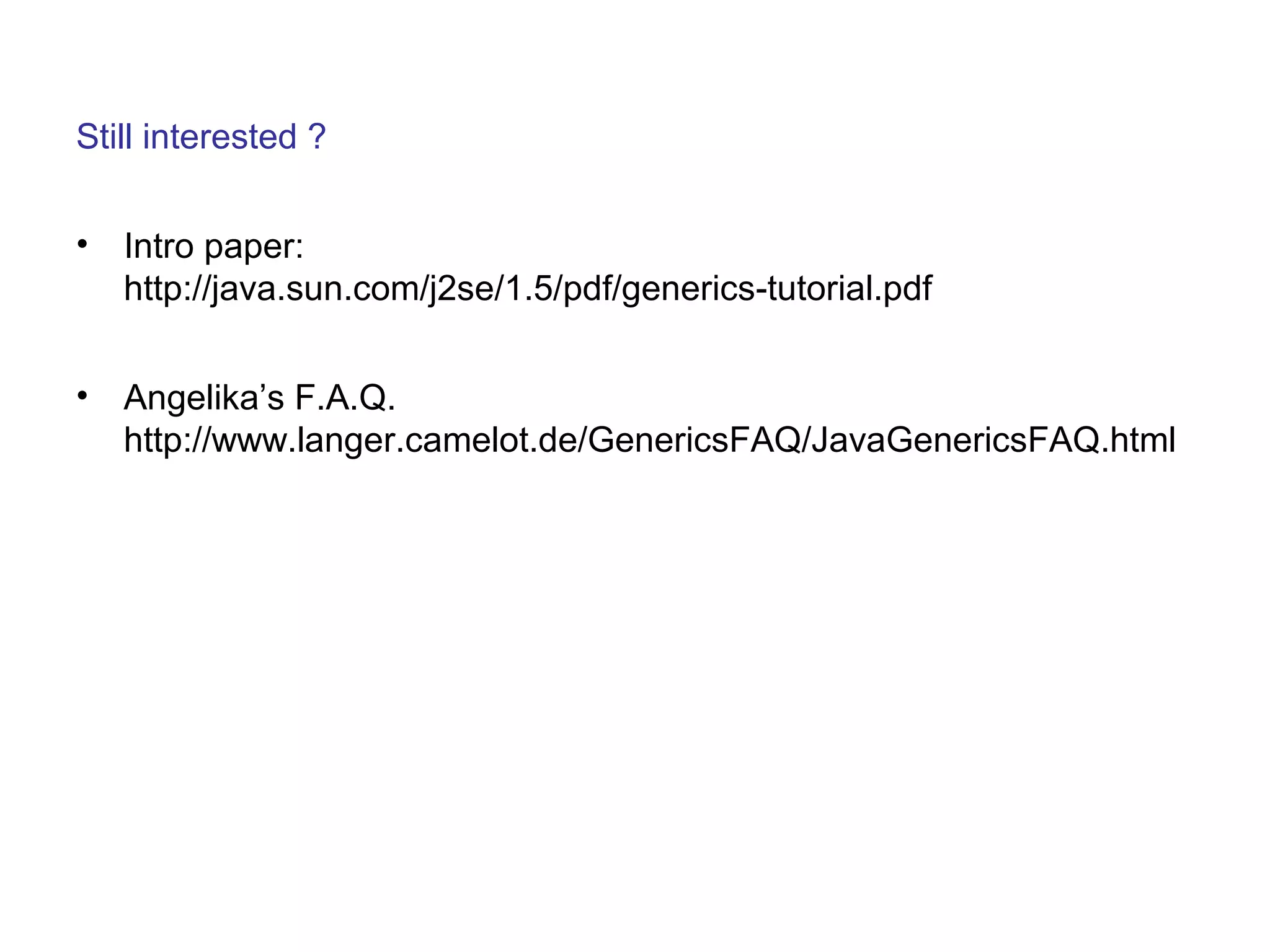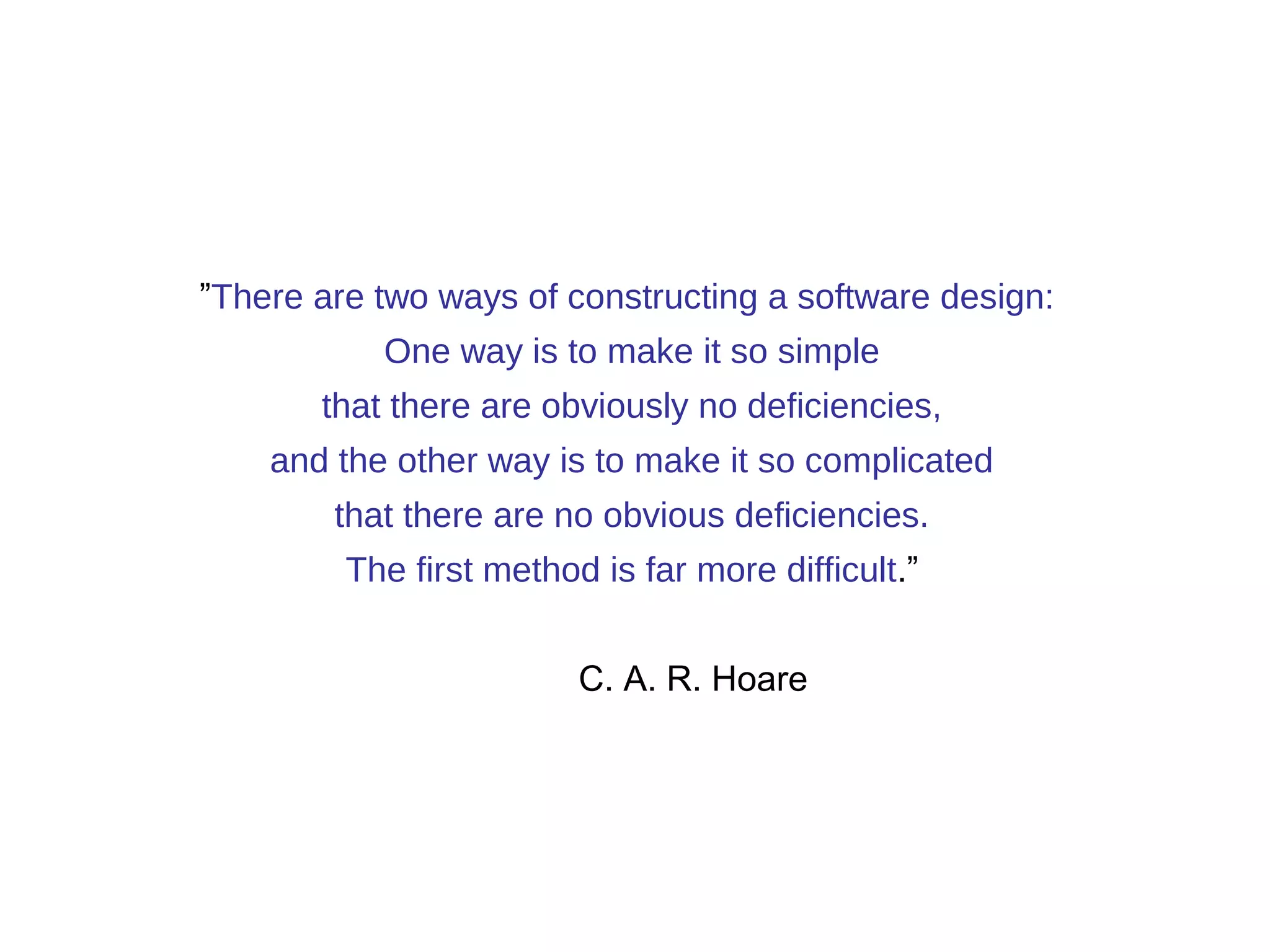The document discusses the introduction and complexities of generics in Java, emphasizing how they enhance type safety and reduce runtime errors by providing stronger typing and eliminating the need for excessive casting. It includes various examples comparing traditional and generic implementations, highlighting the advantages and potential pitfalls of using generics. The author also reflects on broader software design principles, stressing the importance of simplicity and readability in programming.
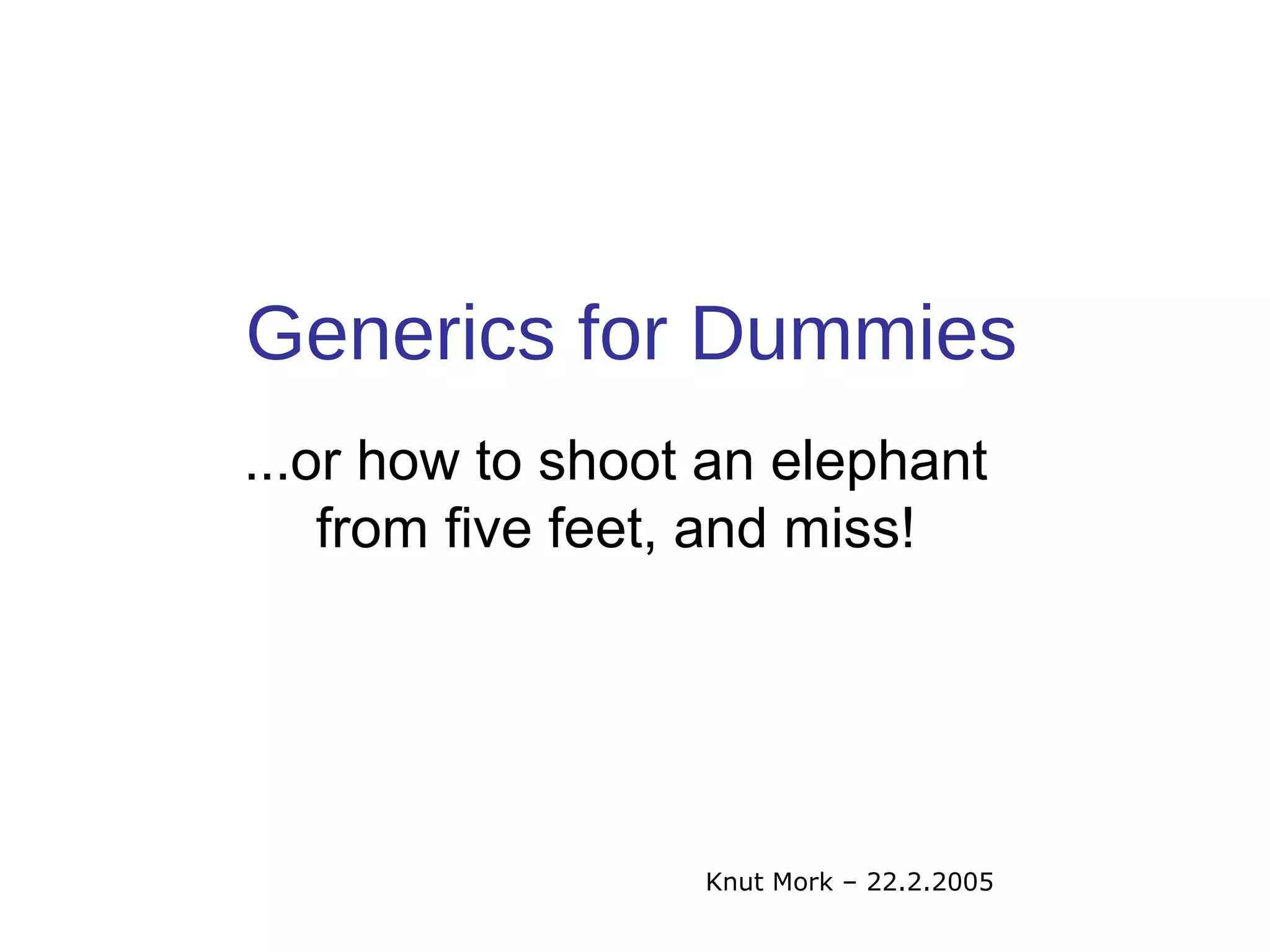
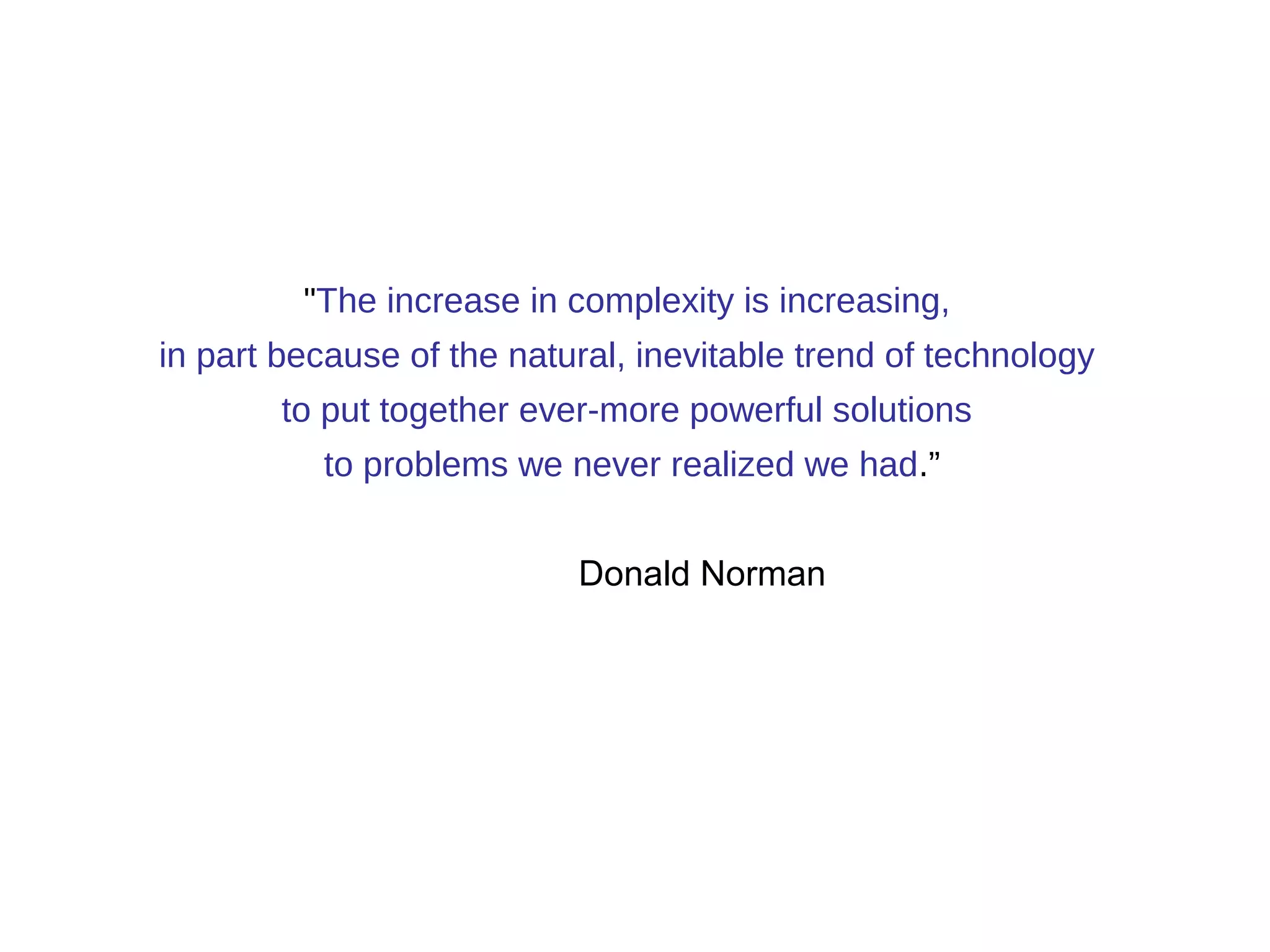
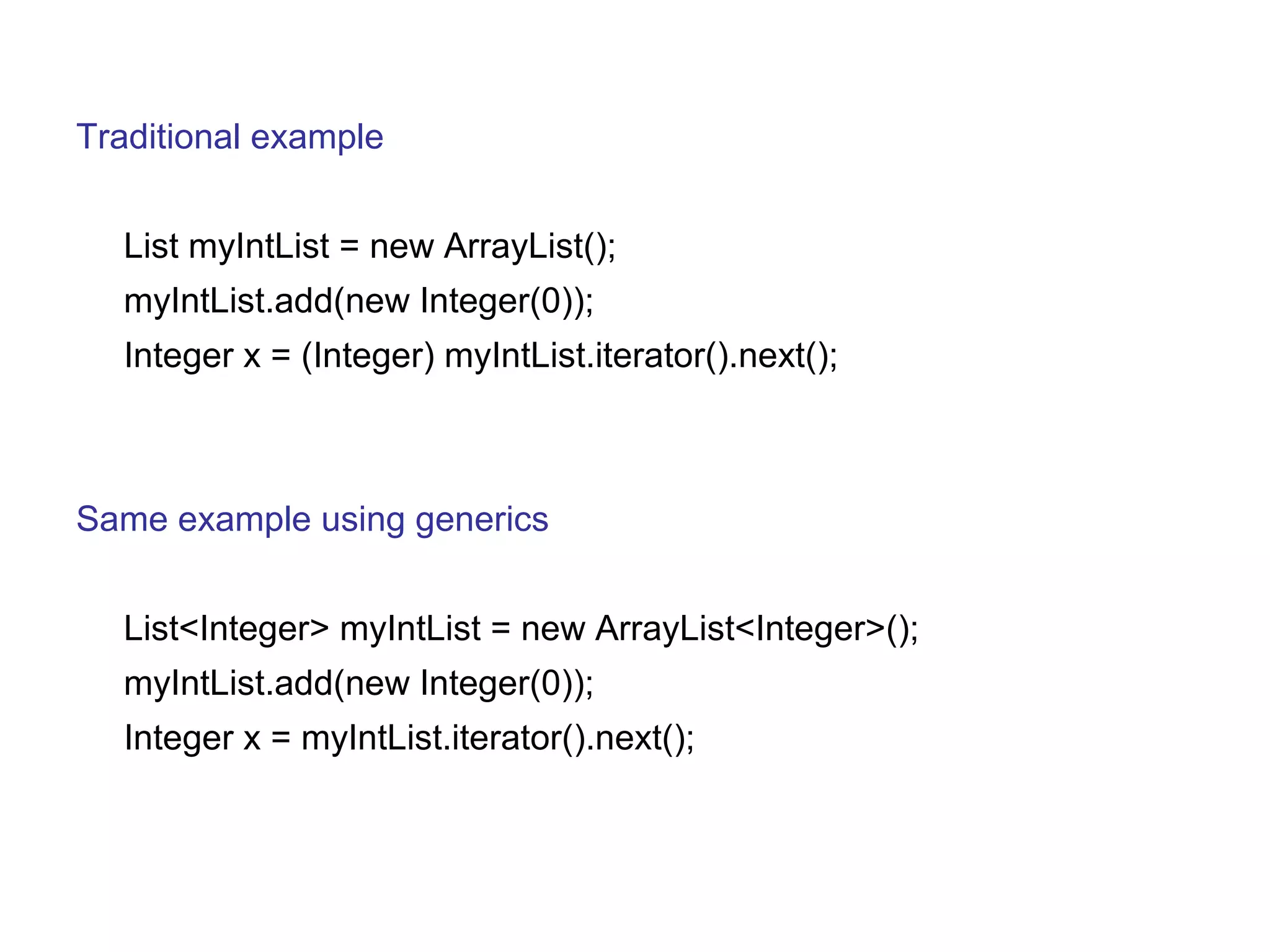
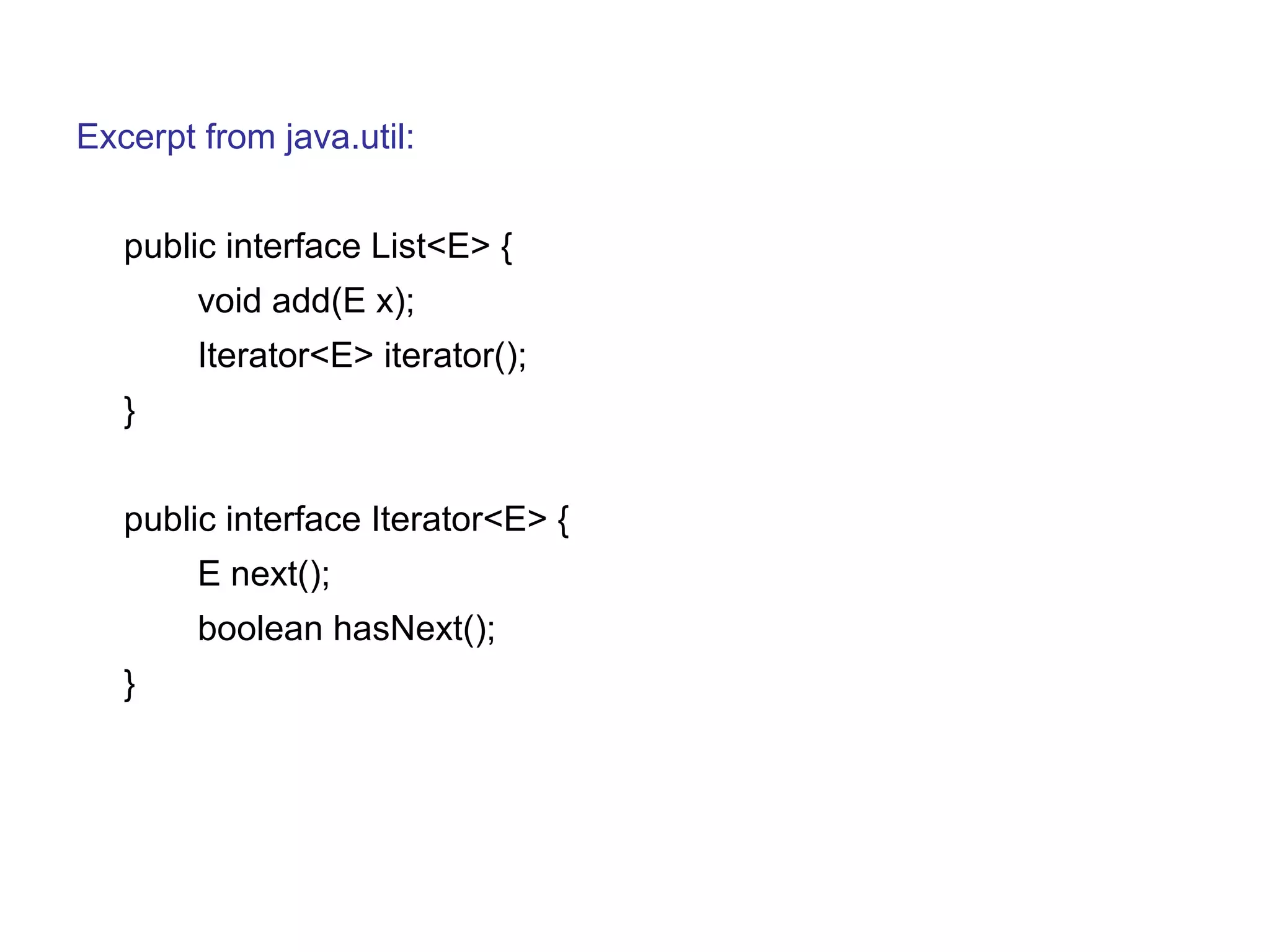
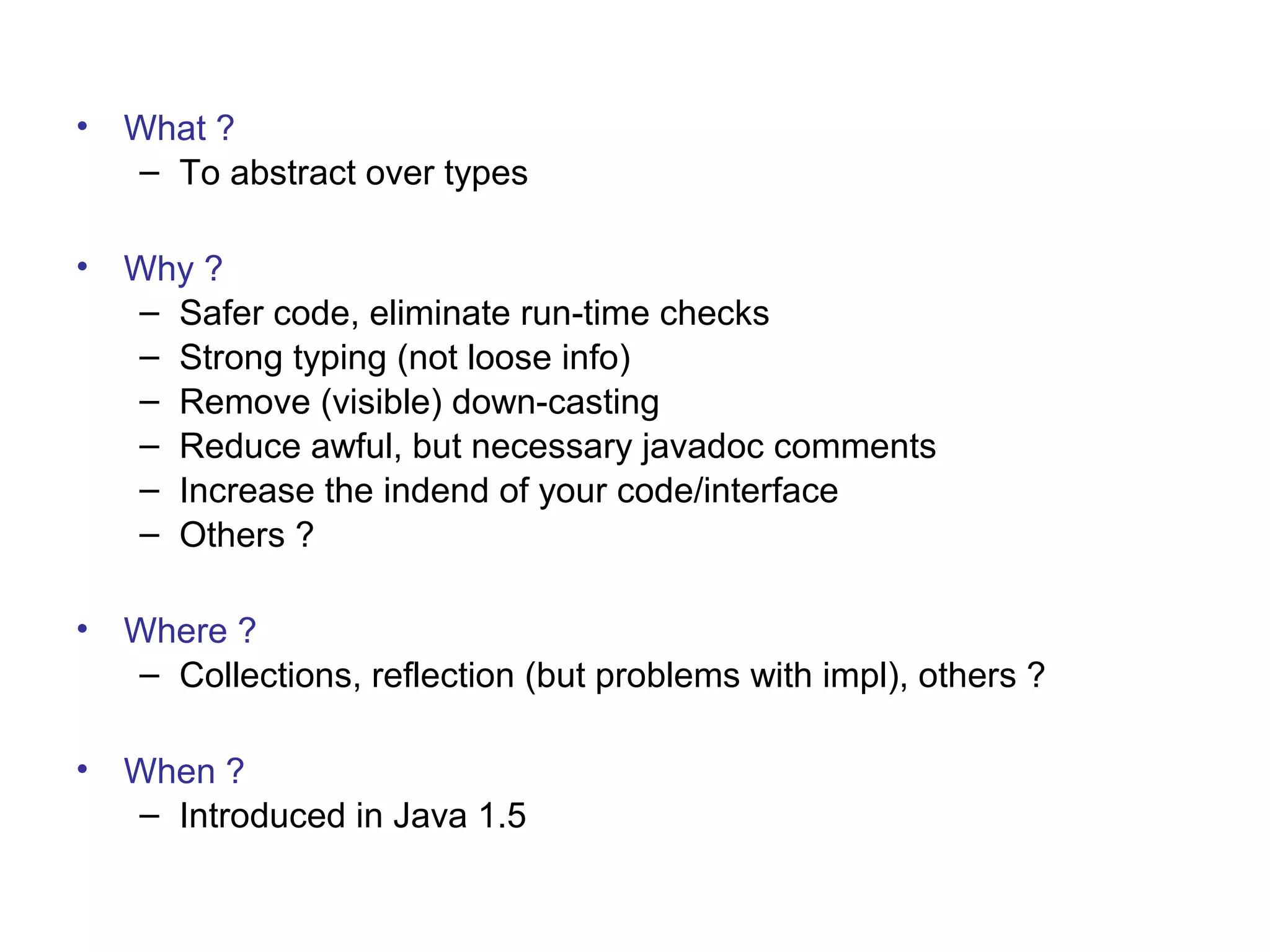
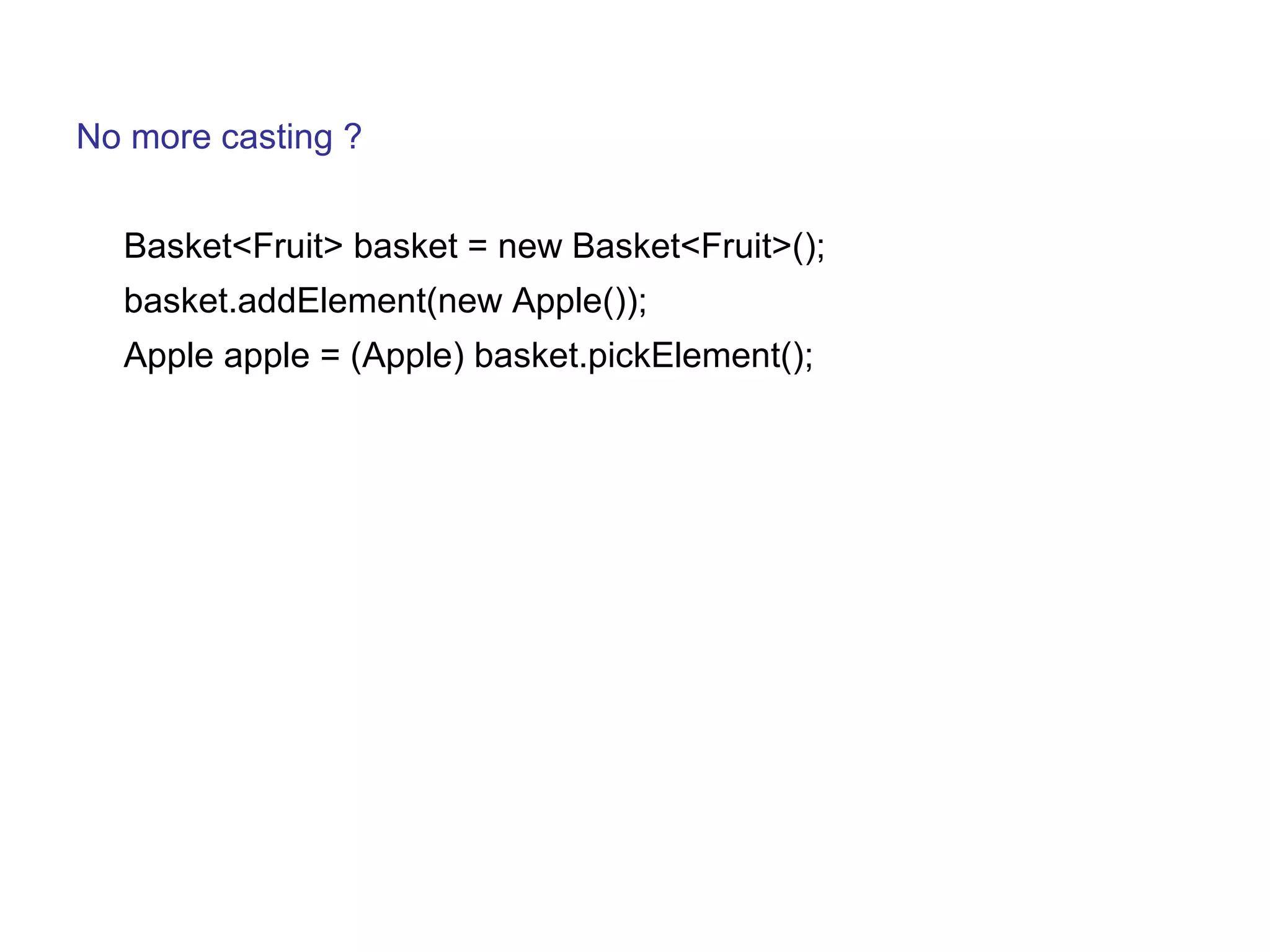
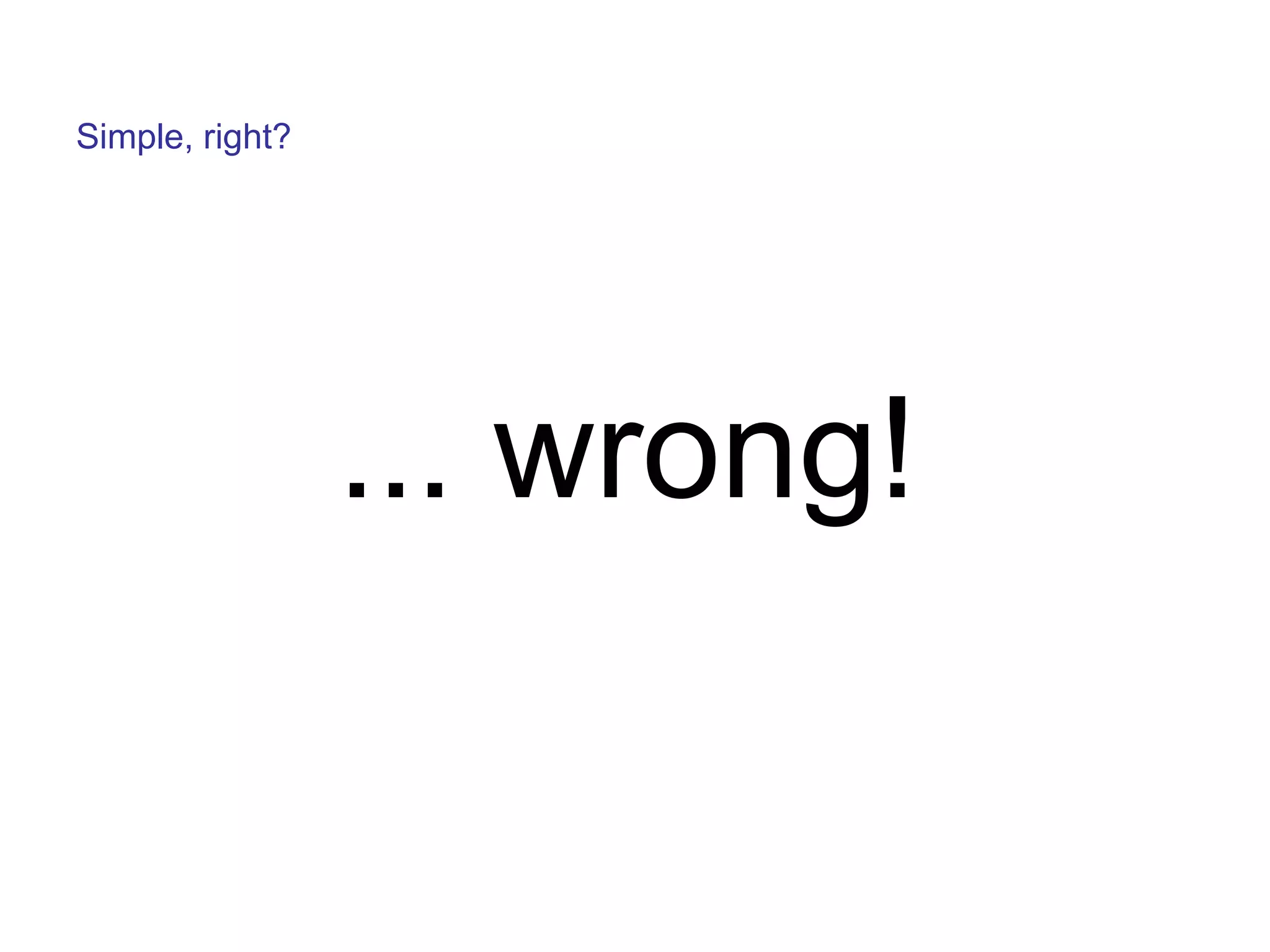
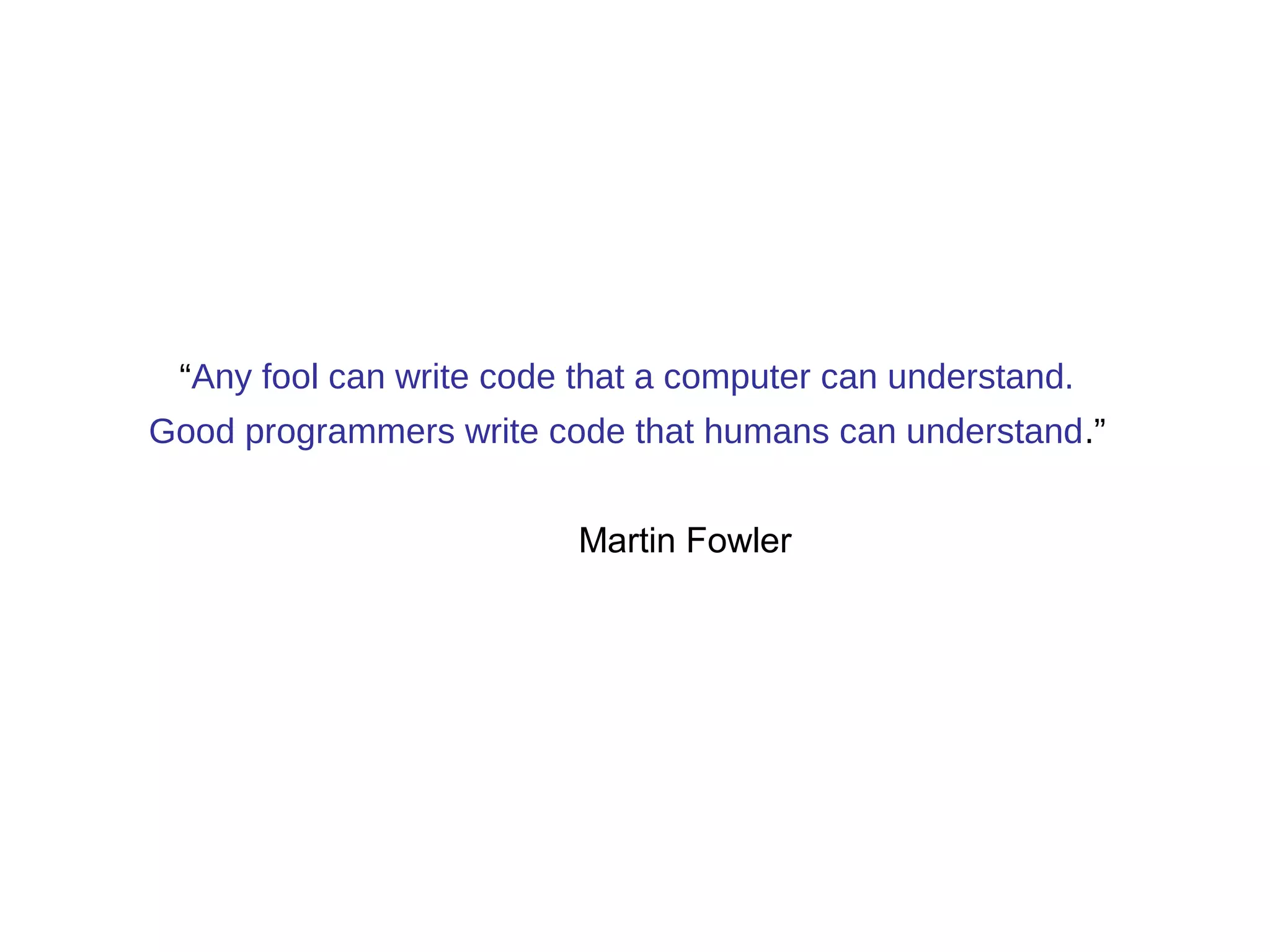
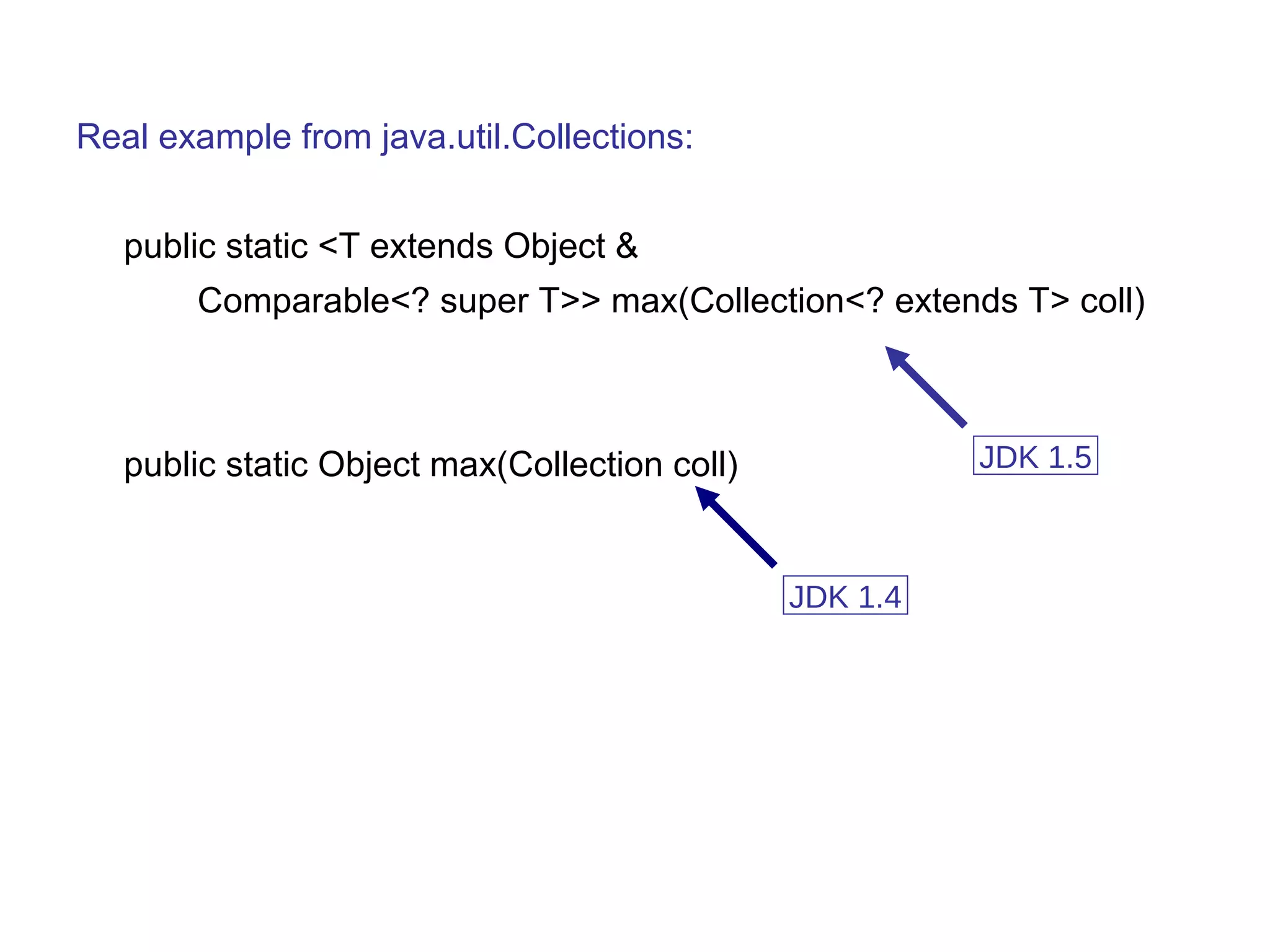
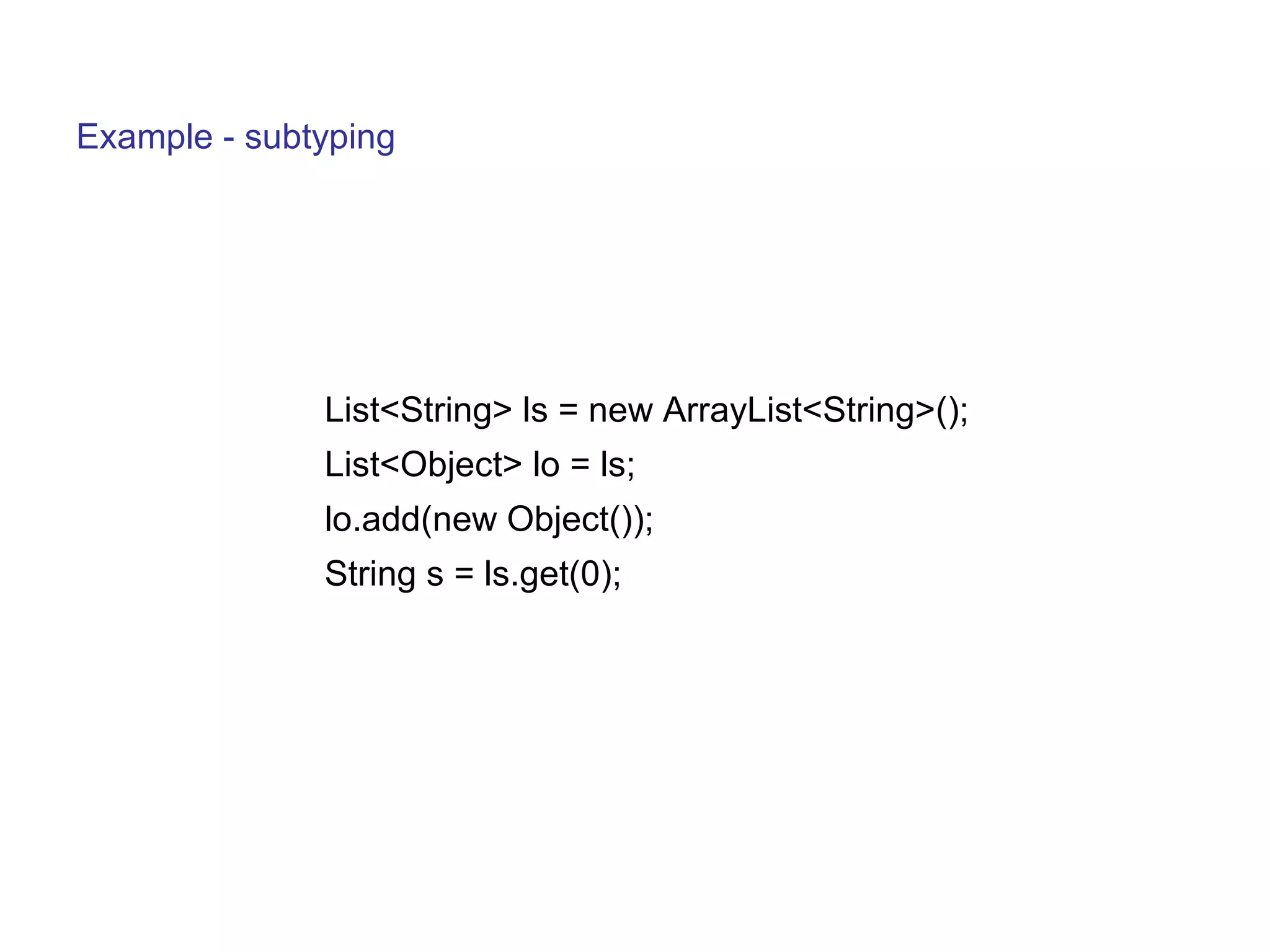
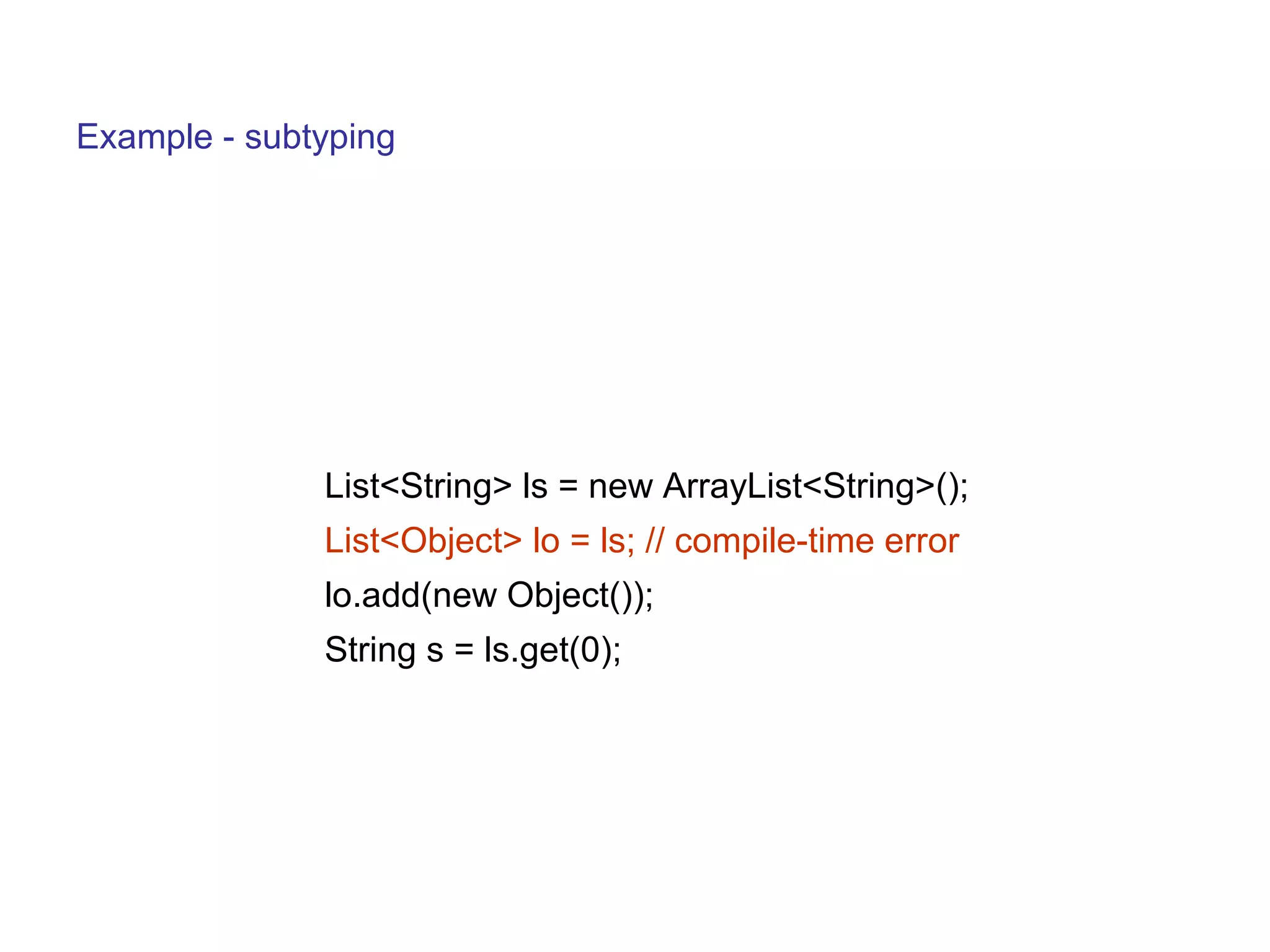
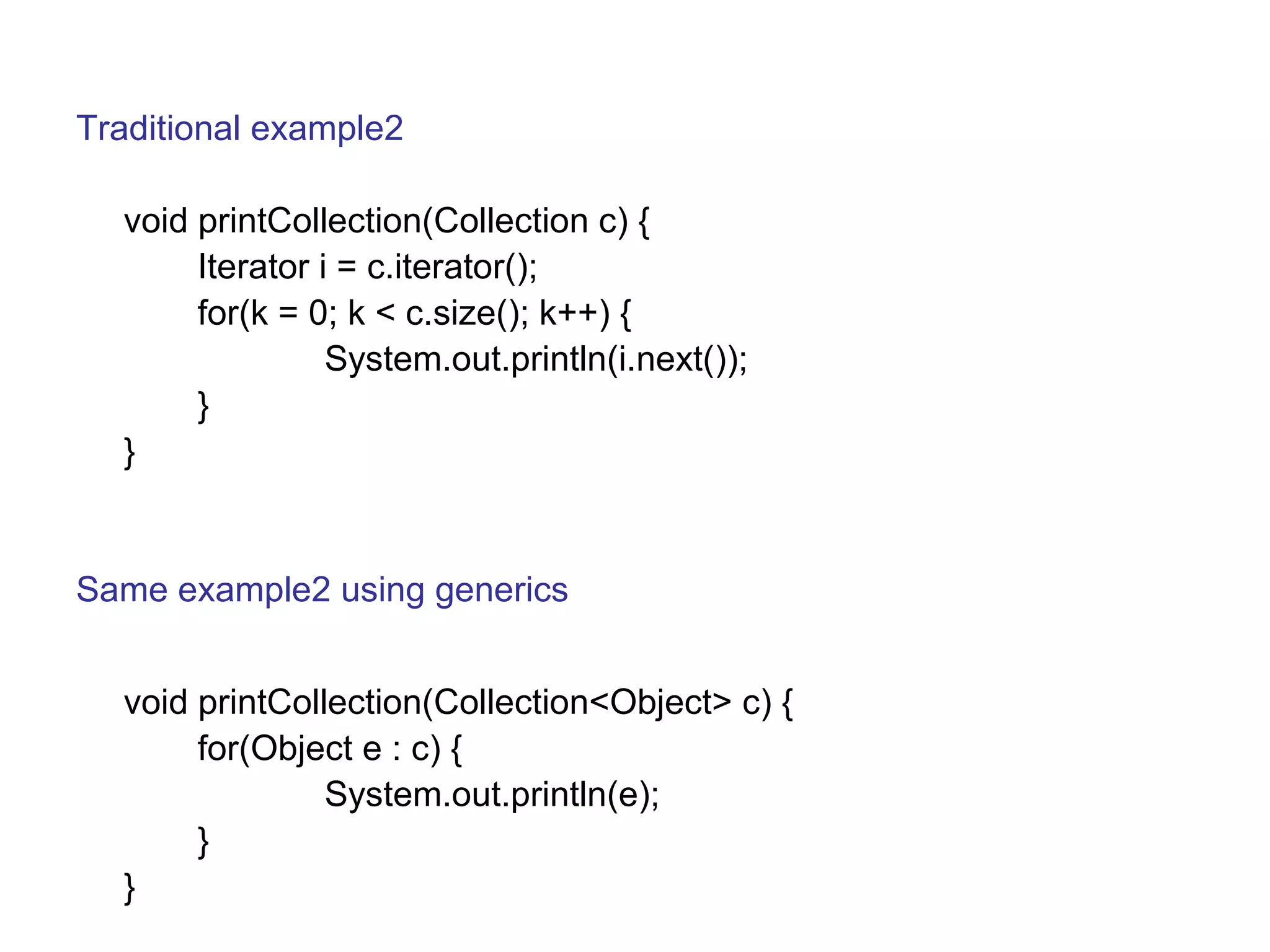
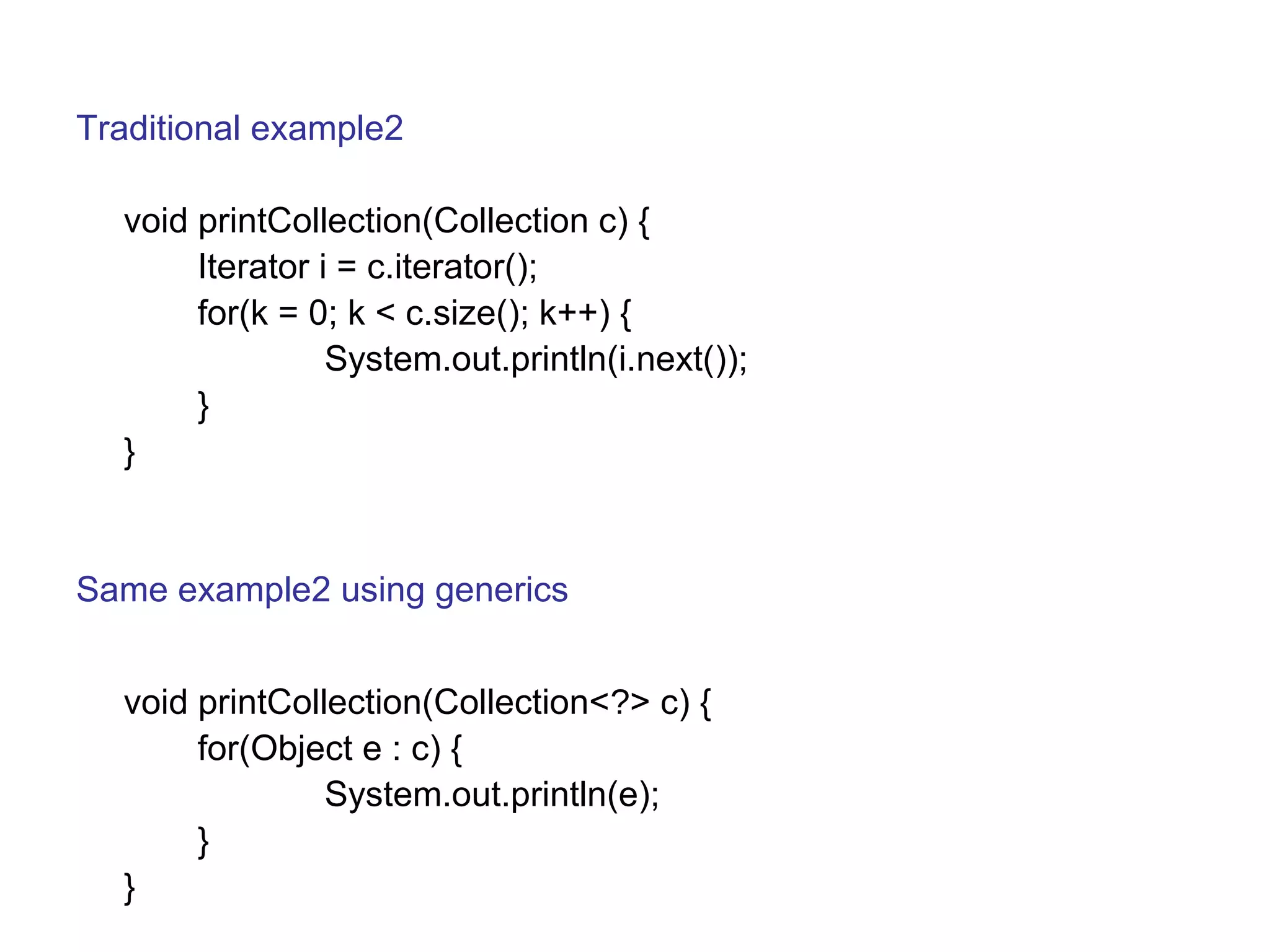
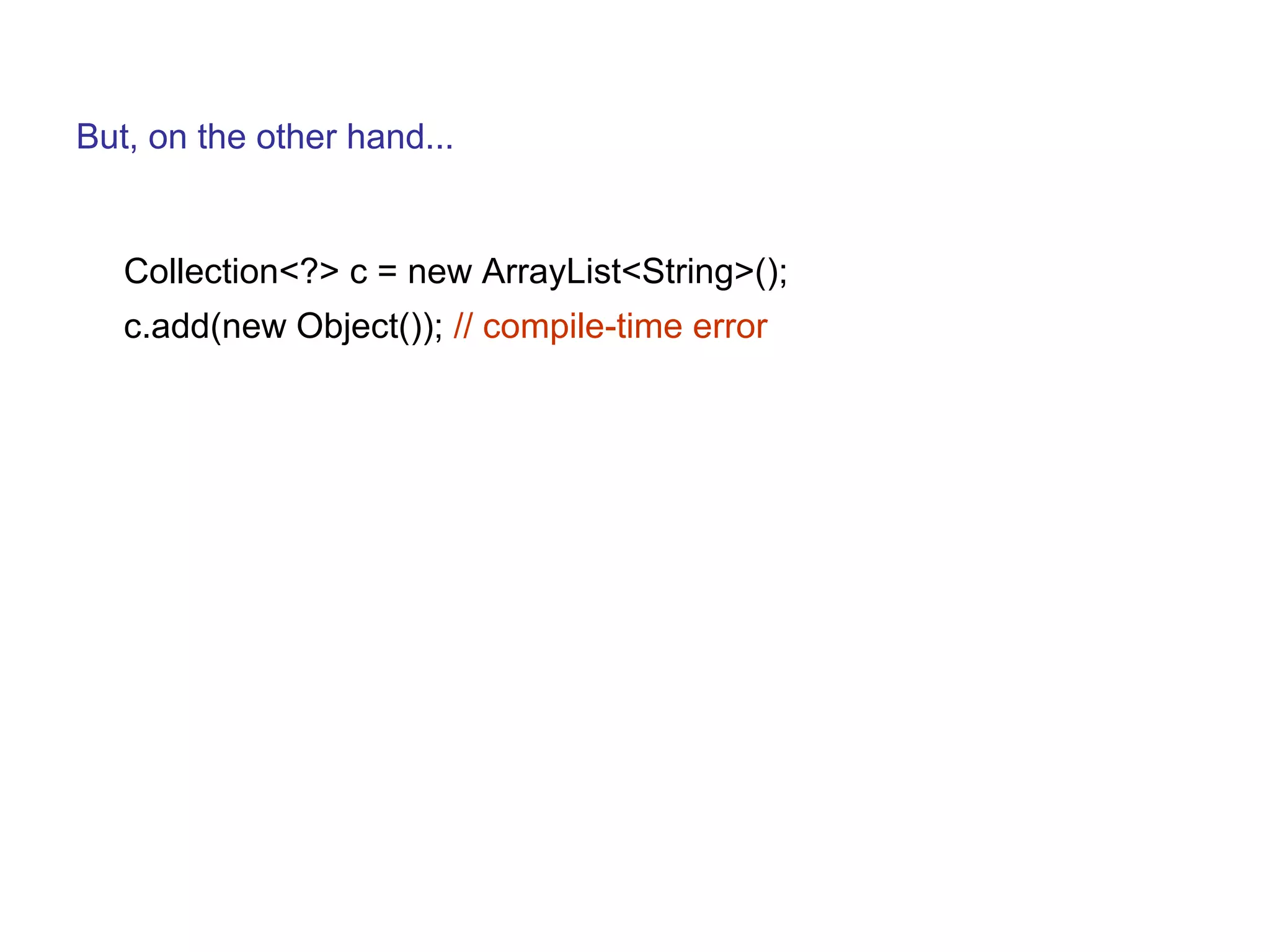
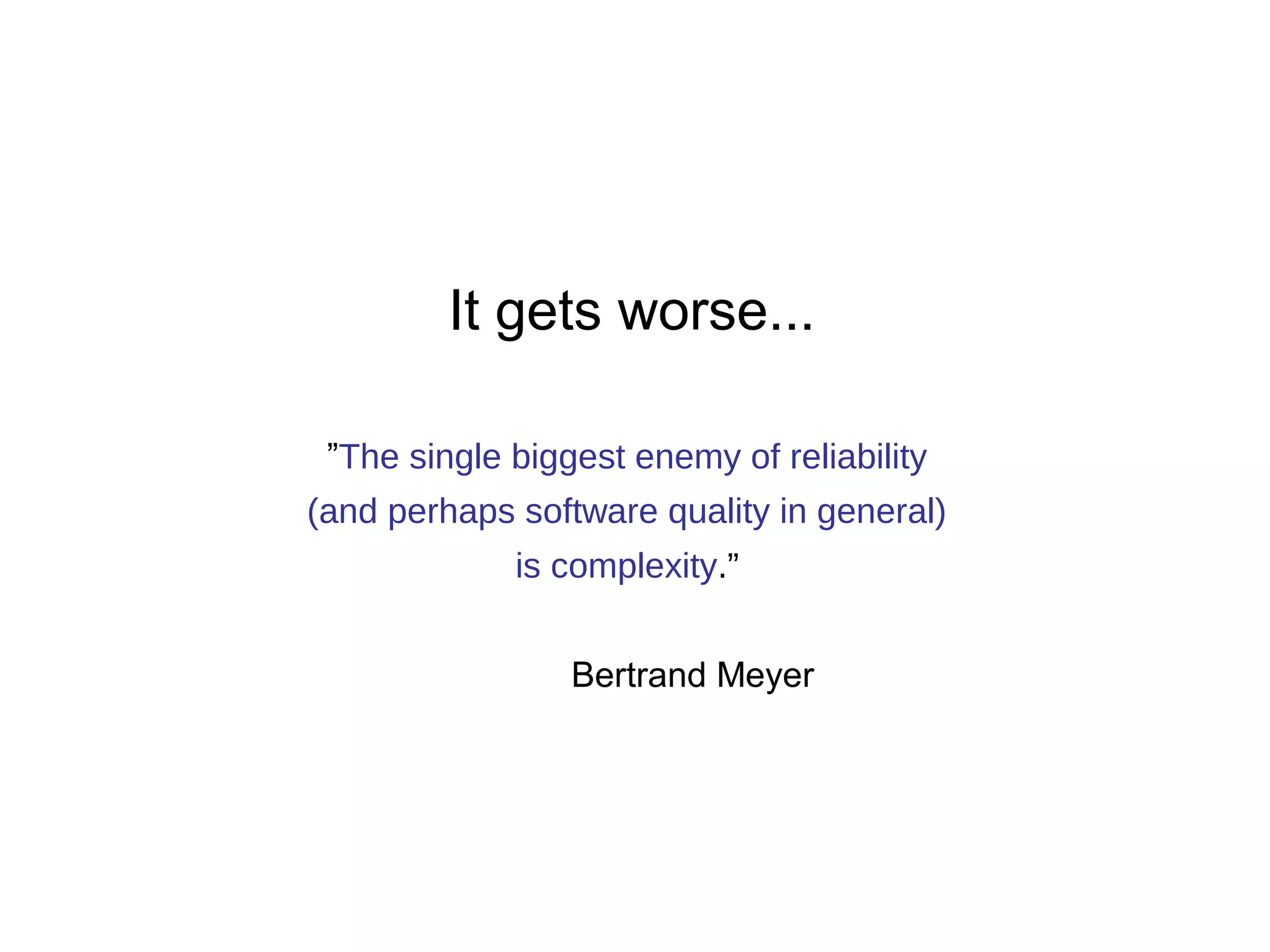
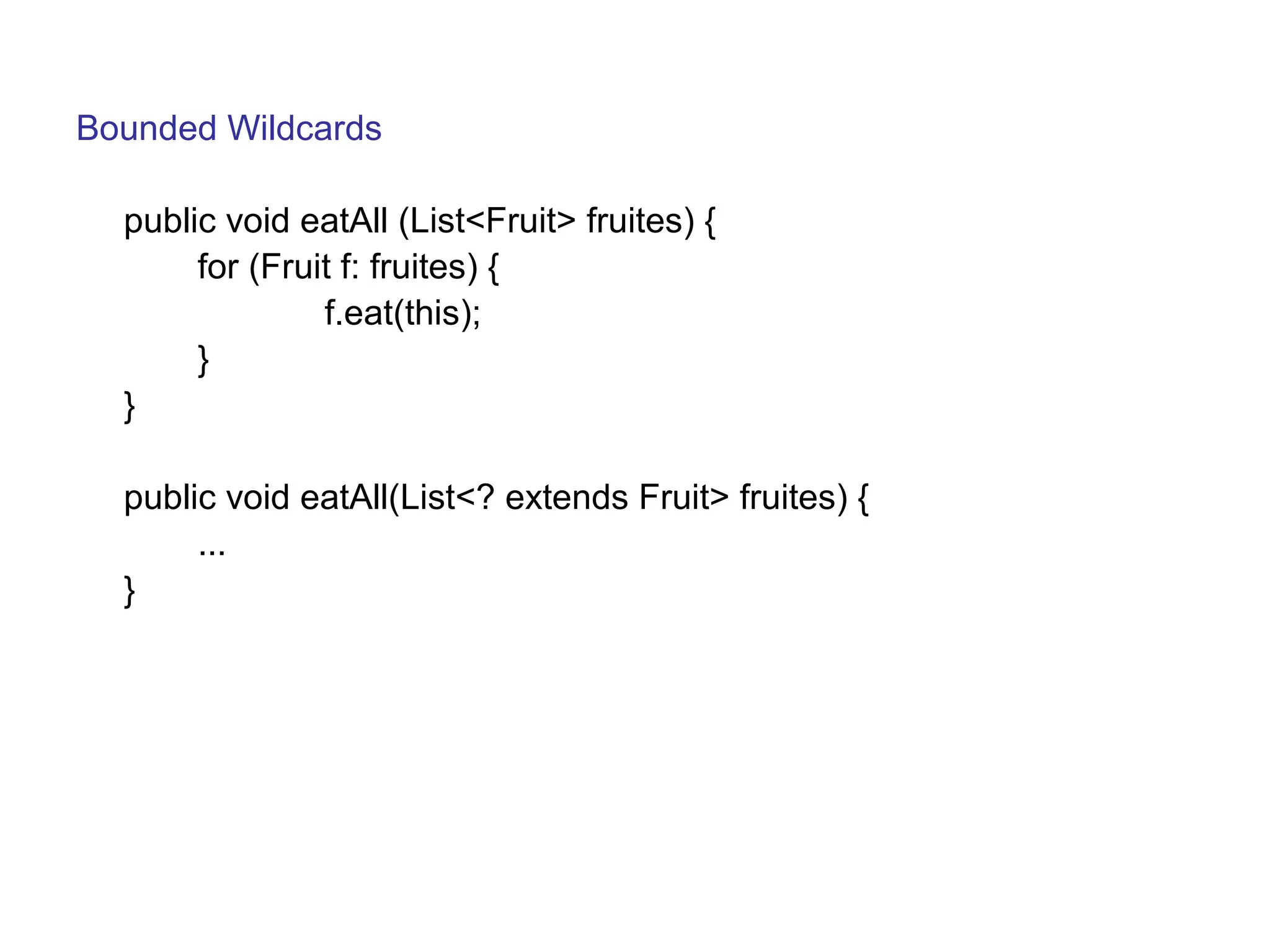
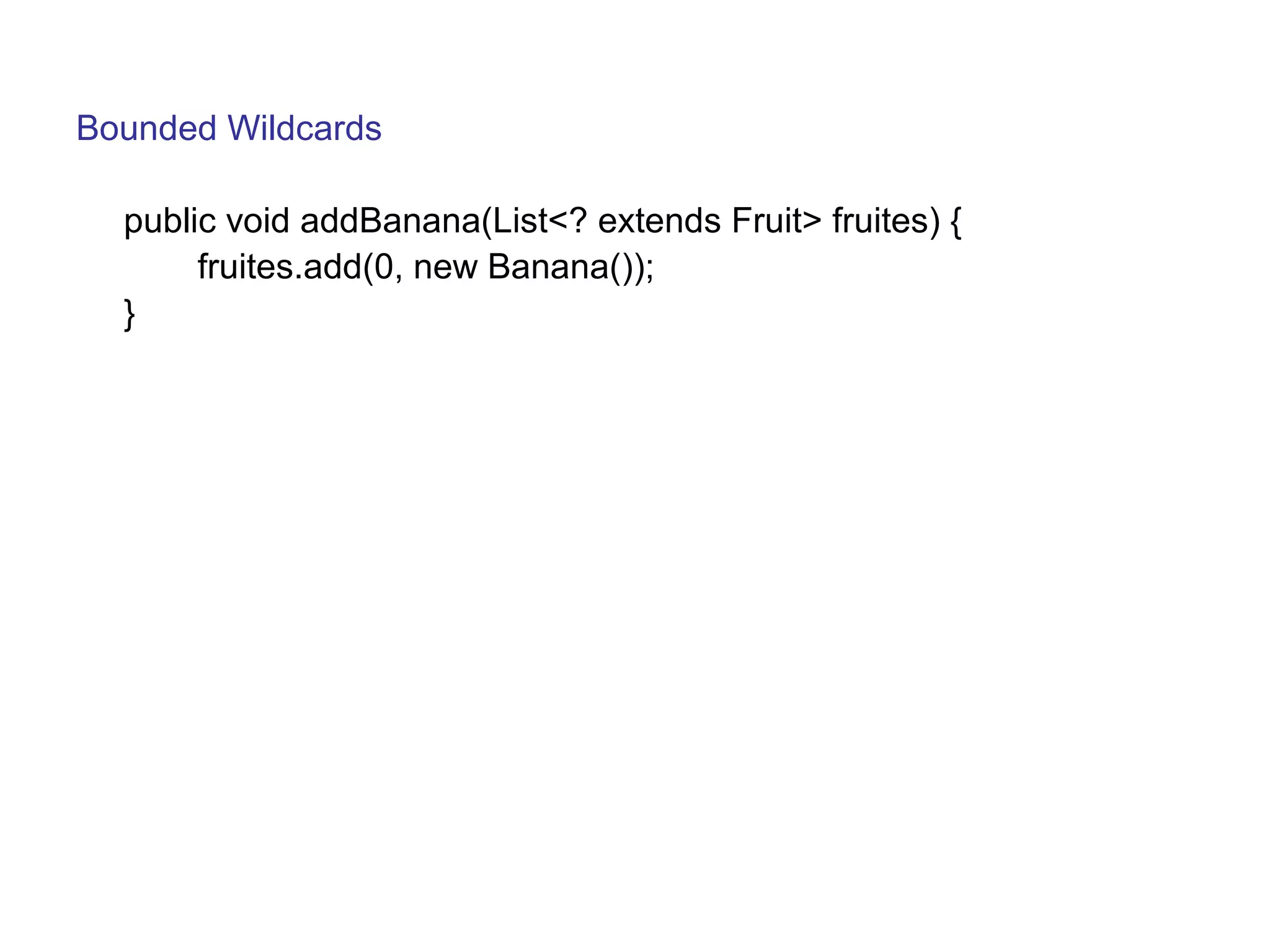
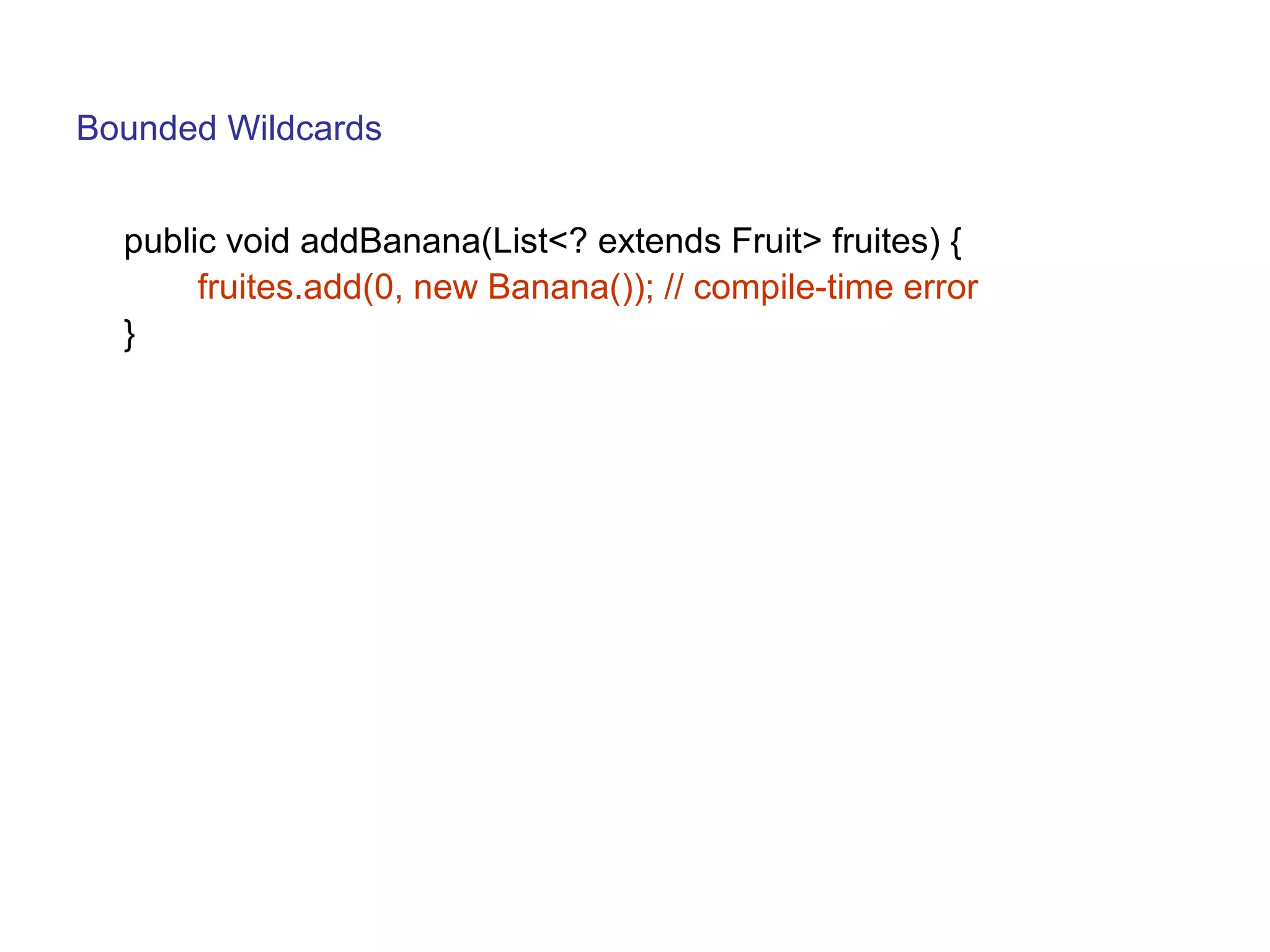

![Example 3
static void fromArrayToCollection(Object[] a, Collection c) {
for (Object o : a) {
c.add(o);
}
}](https://image.slidesharecdn.com/genericsfordummies-140917141316-phpapp02/75/Java-Generics-for-Dummies-20-2048.jpg)
![Example 3
static void fromArrayToCollection(Object[] a, Collection c) {
for (Object o : a) {
c.add(o);
}
}
Generic version:
static void fromArrayToCollection(Object[] a, Collection<?> c) {
for (Object o : a) {
c.add(o);
}
}](https://image.slidesharecdn.com/genericsfordummies-140917141316-phpapp02/75/Java-Generics-for-Dummies-21-2048.jpg)
![Example 3
static void fromArrayToCollection(Object[] a, Collection c) {
for (Object o : a) {
c.add(o);
}
}
Generic version:
static void fromArrayToCollection(Object[] a, Collection<?> c) {
for (Object o : a) {
c.add(o); // compile-time error
}
}](https://image.slidesharecdn.com/genericsfordummies-140917141316-phpapp02/75/Java-Generics-for-Dummies-22-2048.jpg)
![Example 3
static void fromArrayToCollection(Object[] a, Collection c) {
for (Object o : a) {
c.add(o);
}
}
Generic working version:
static <T> void fromArrayToCollection(T[] a, Collection<T> c) {
for (T o : a) {
c.add(o);
}
}](https://image.slidesharecdn.com/genericsfordummies-140917141316-phpapp02/75/Java-Generics-for-Dummies-23-2048.jpg)

